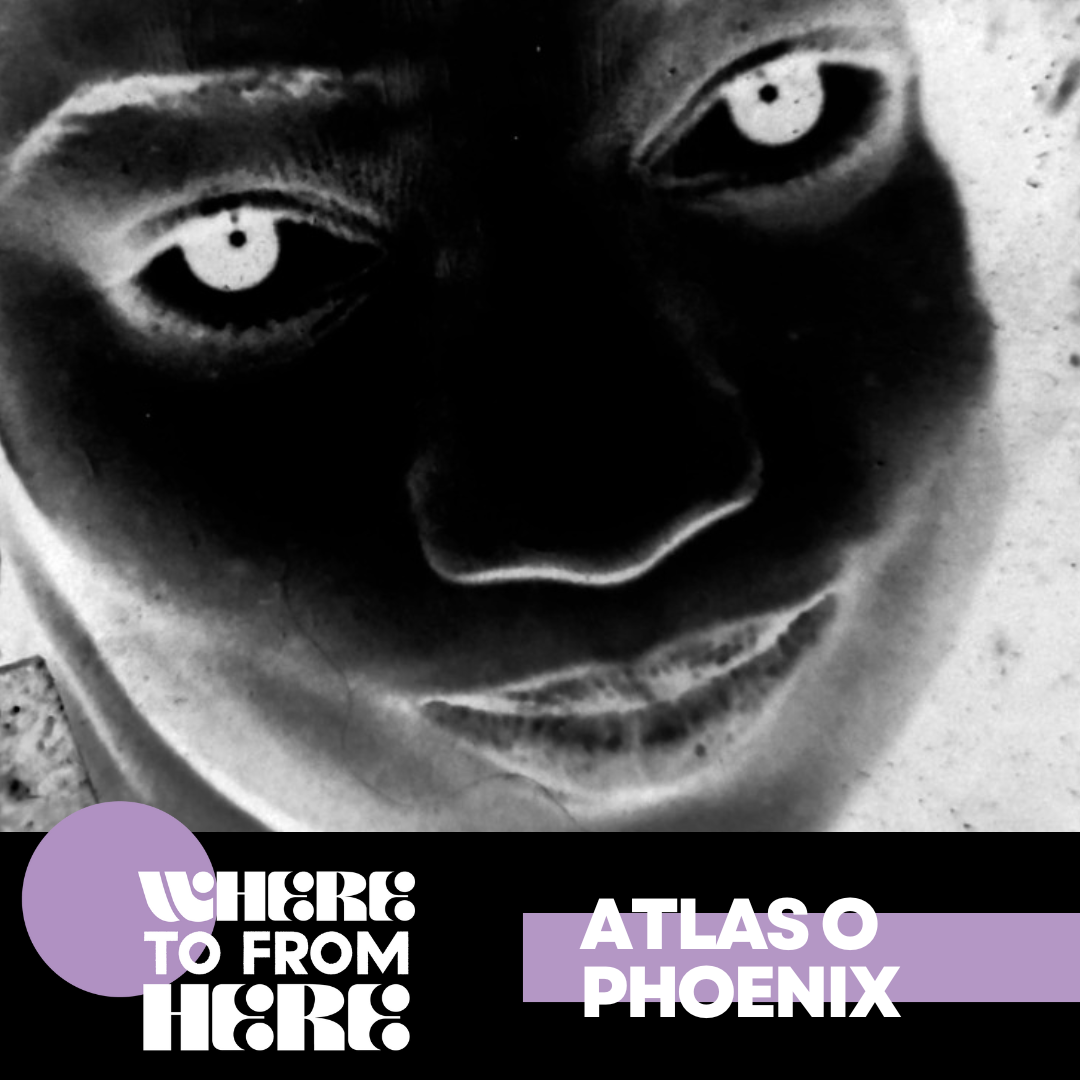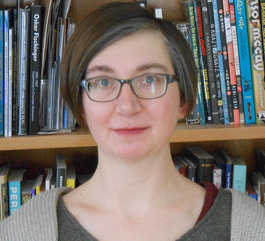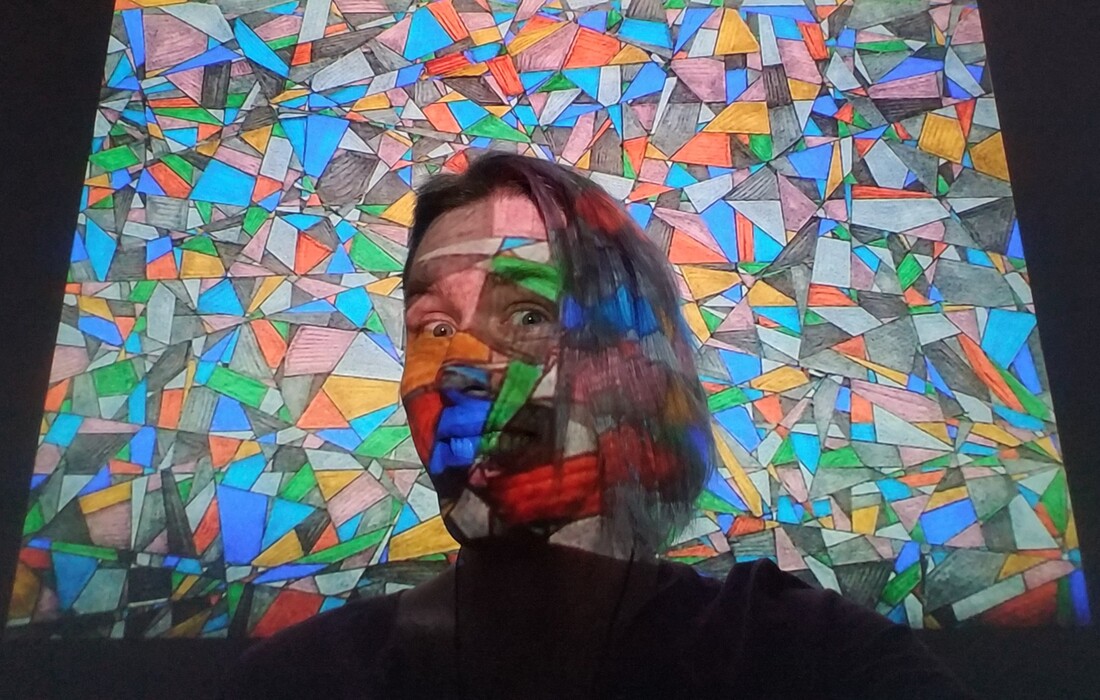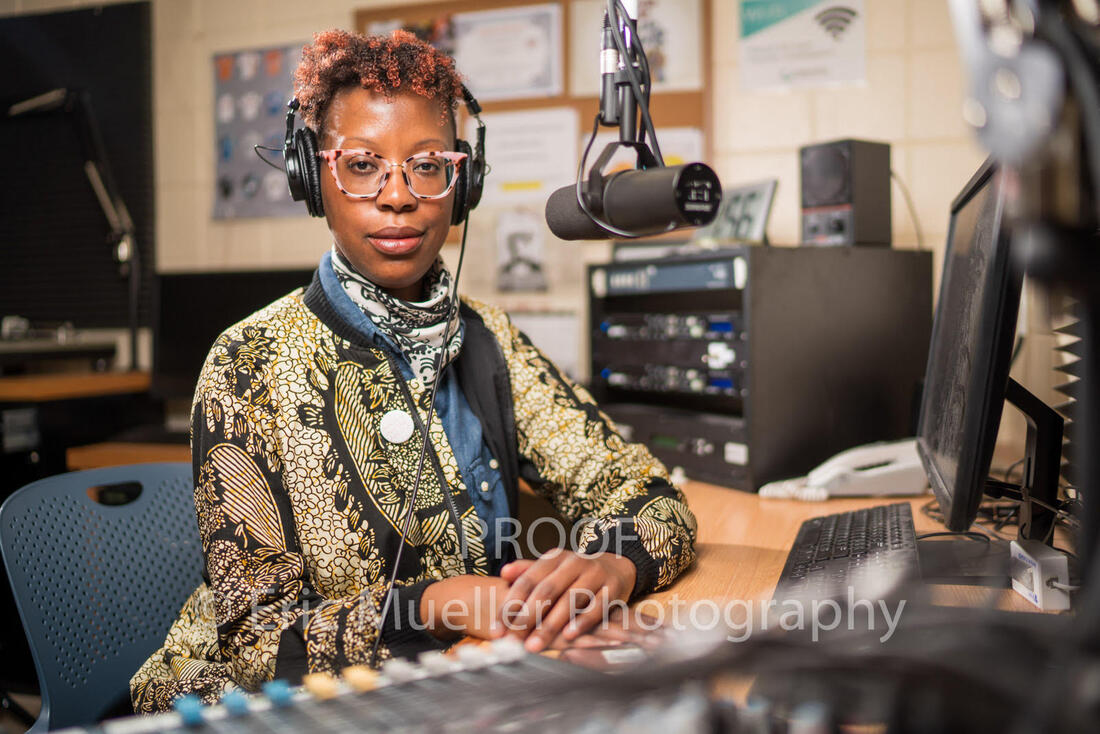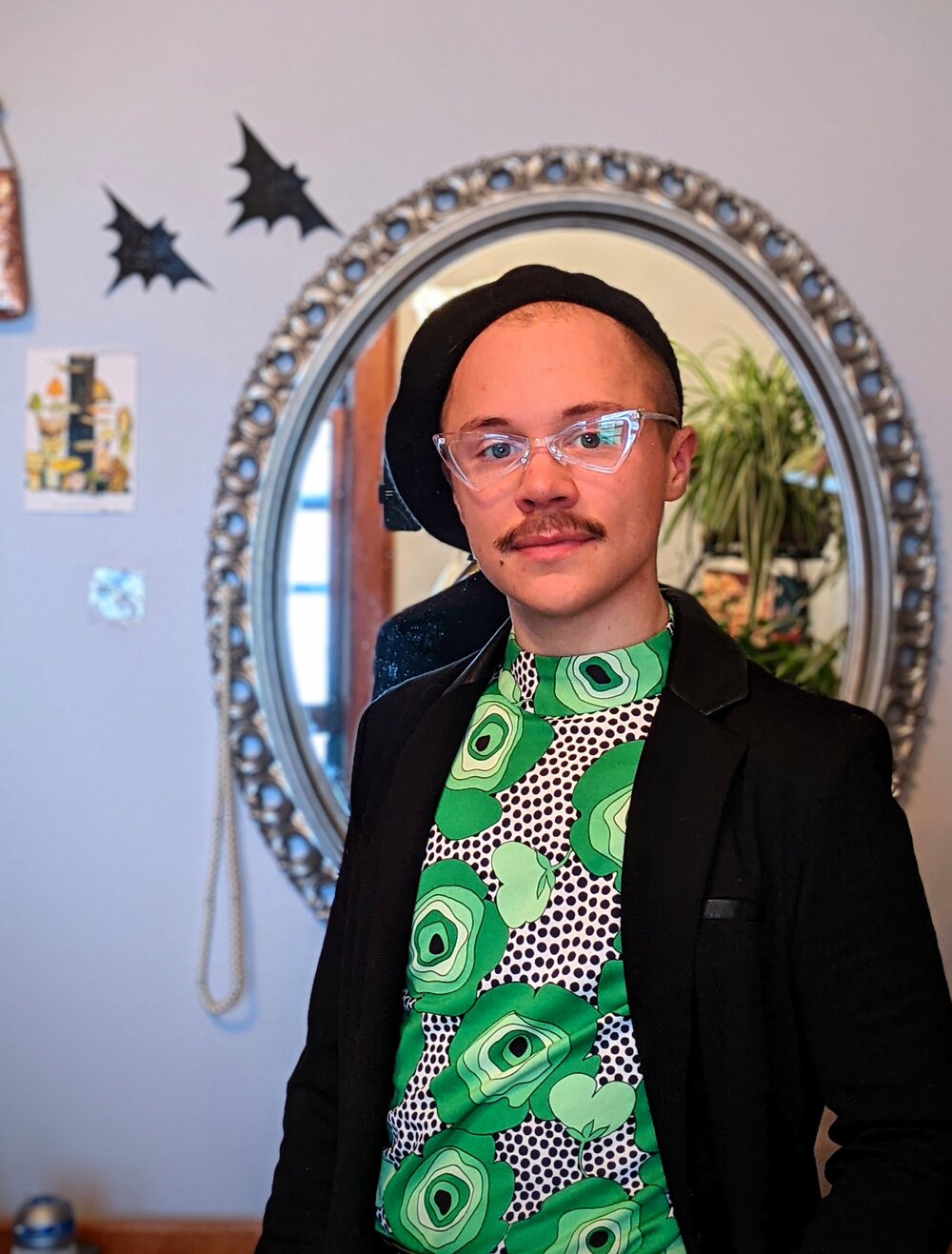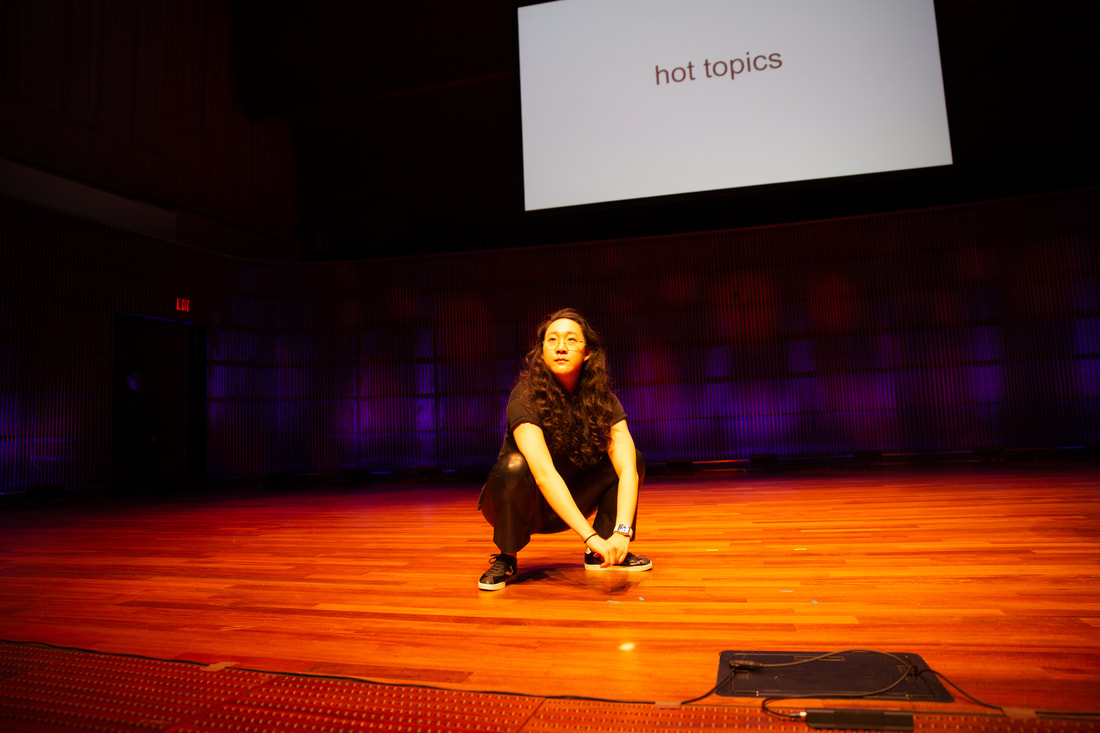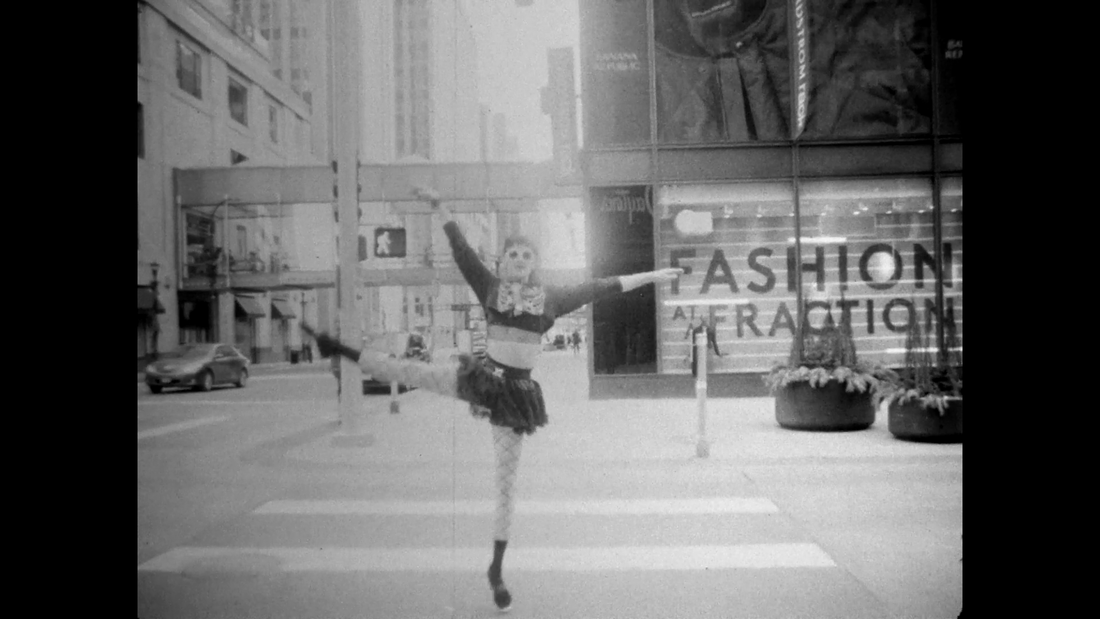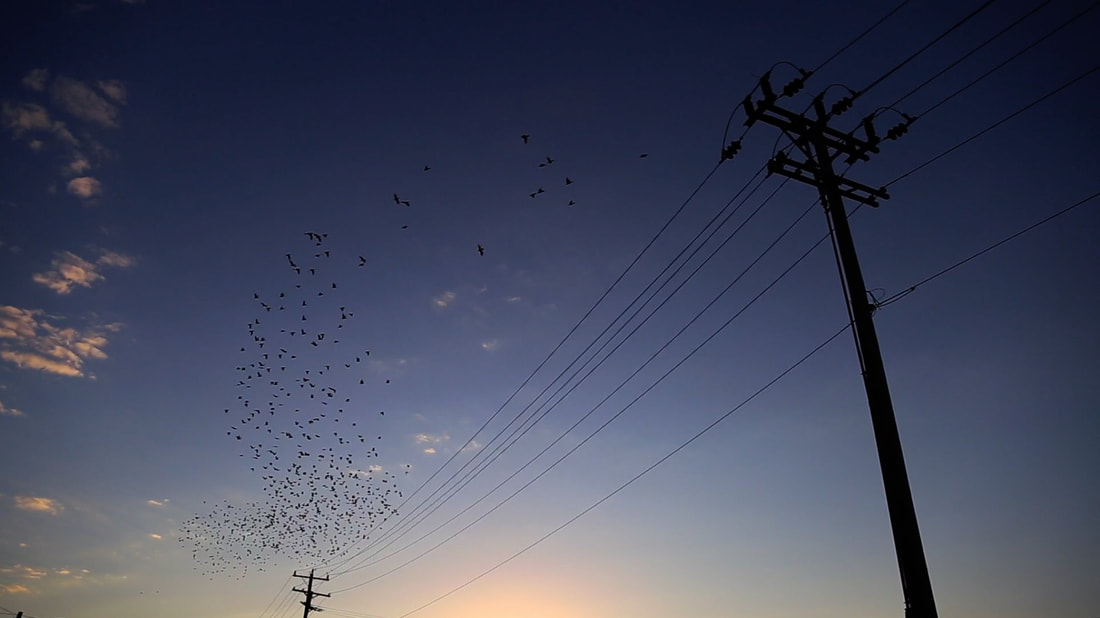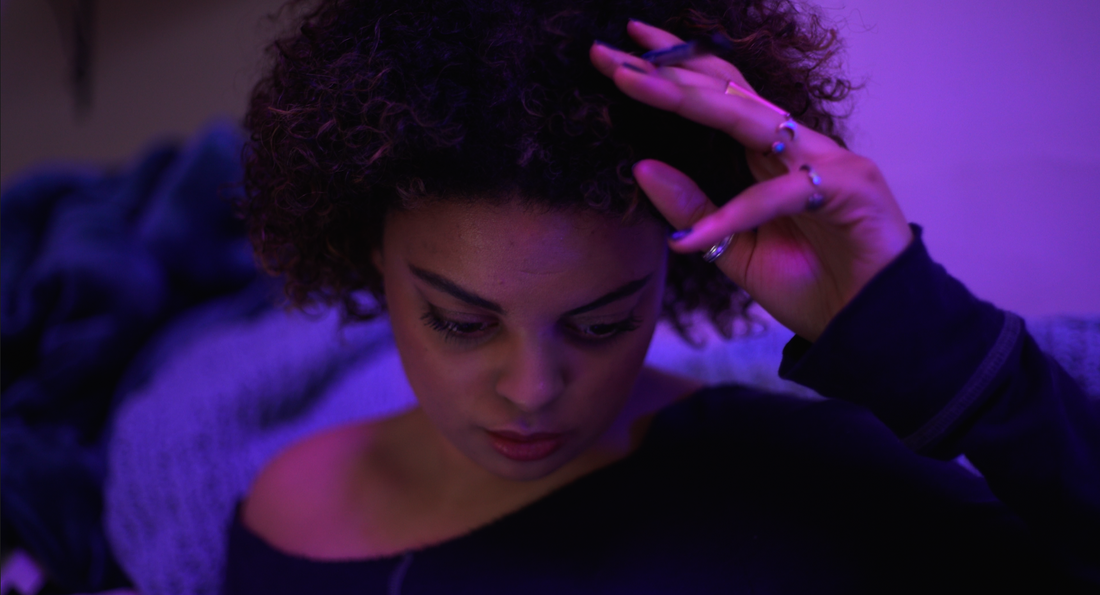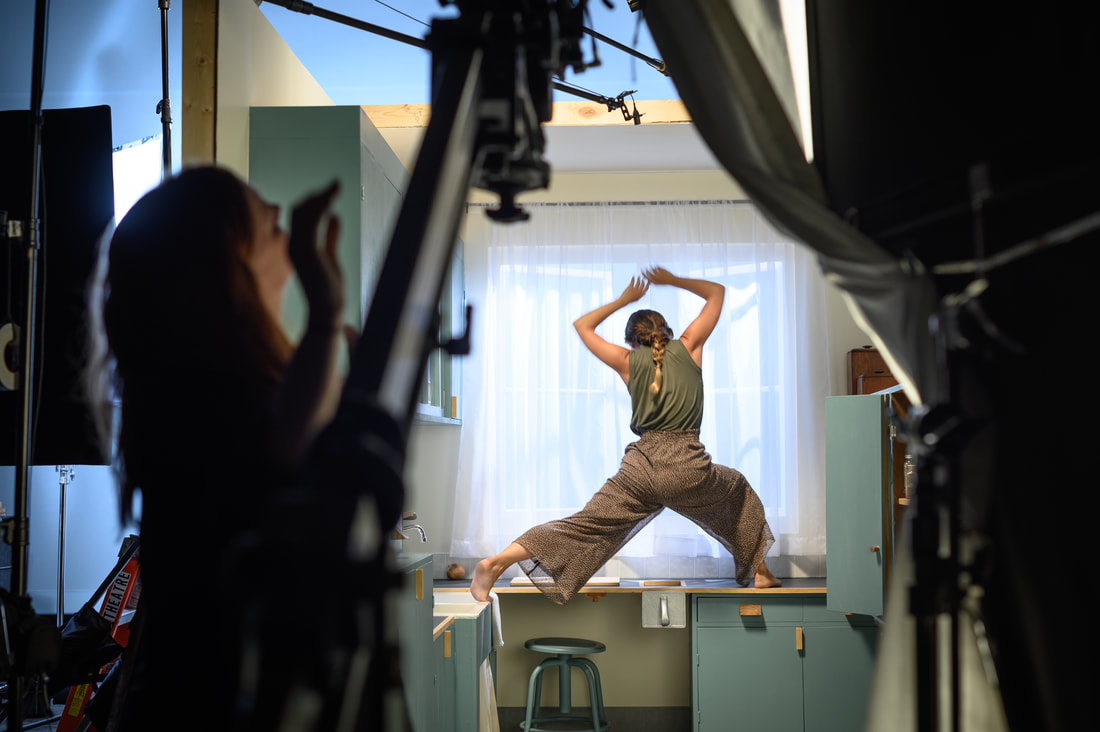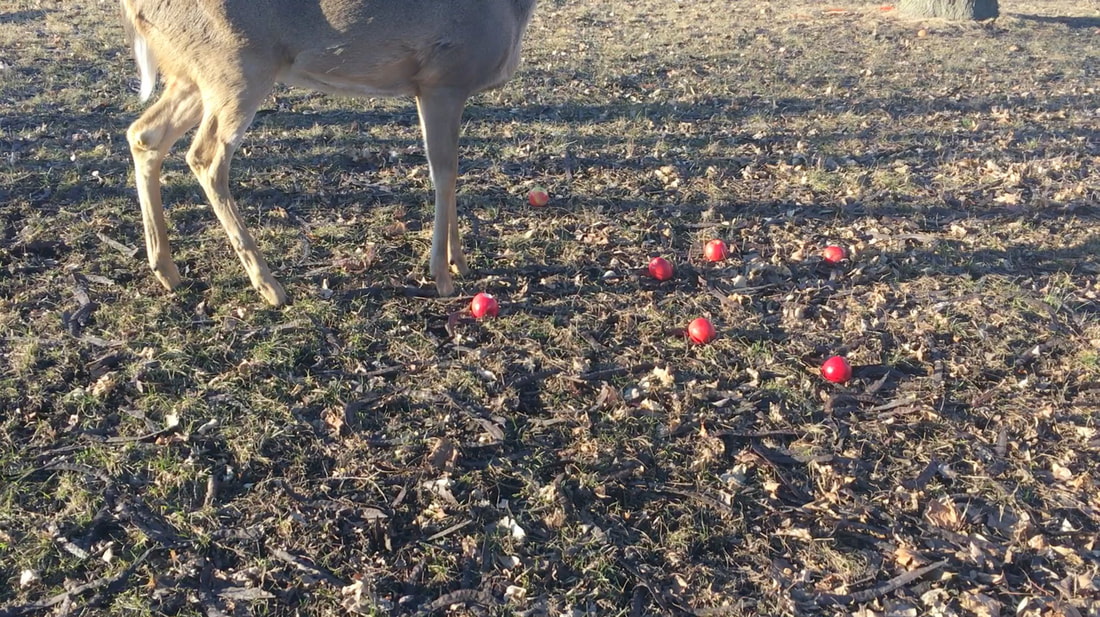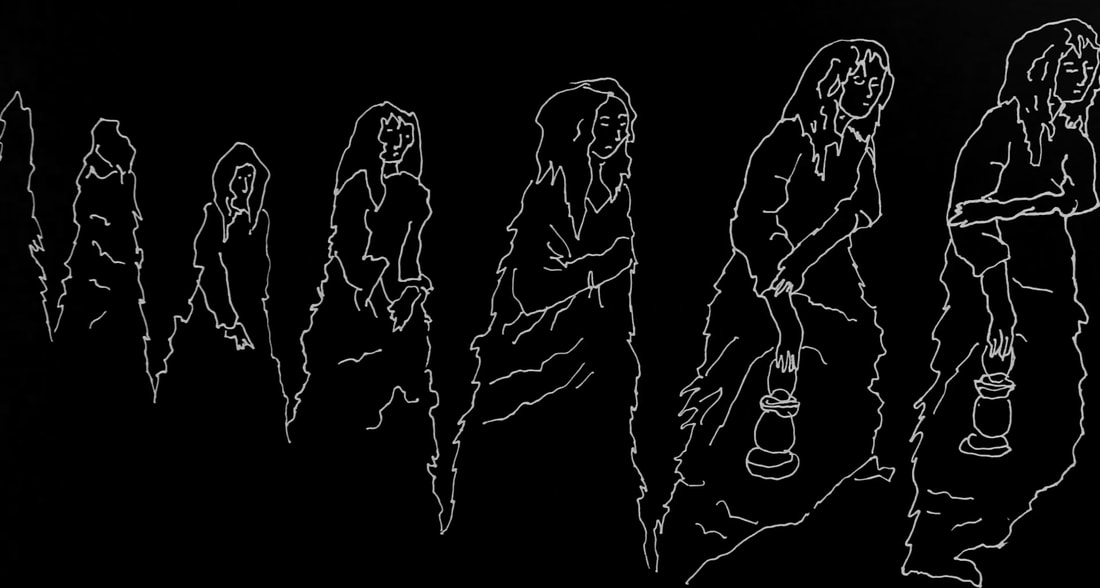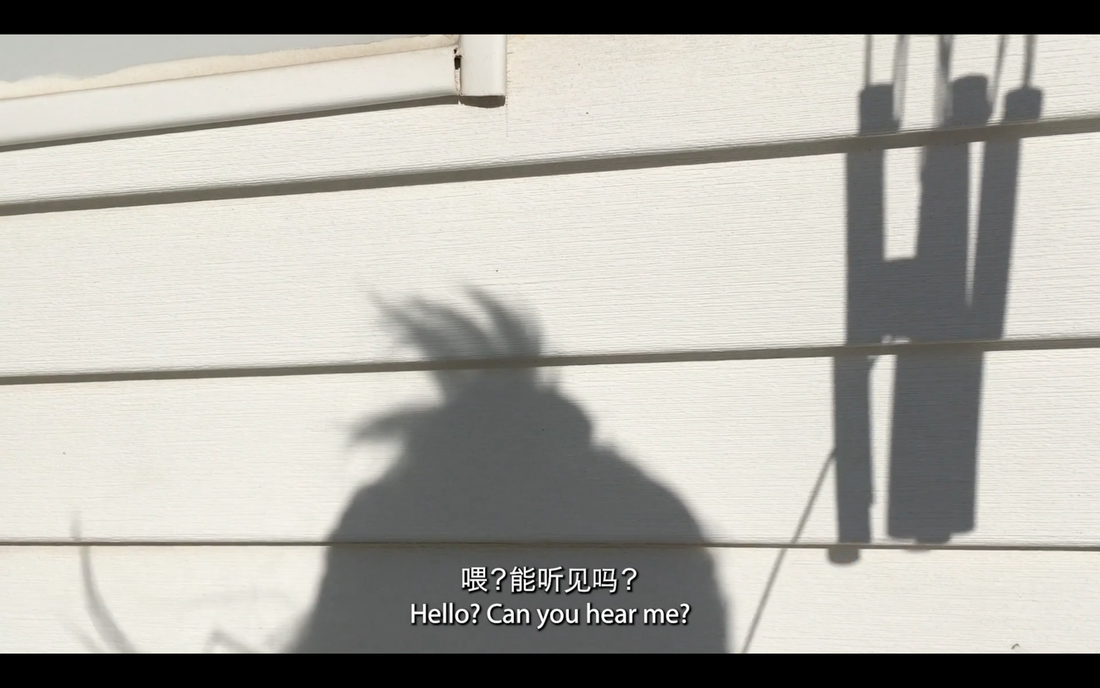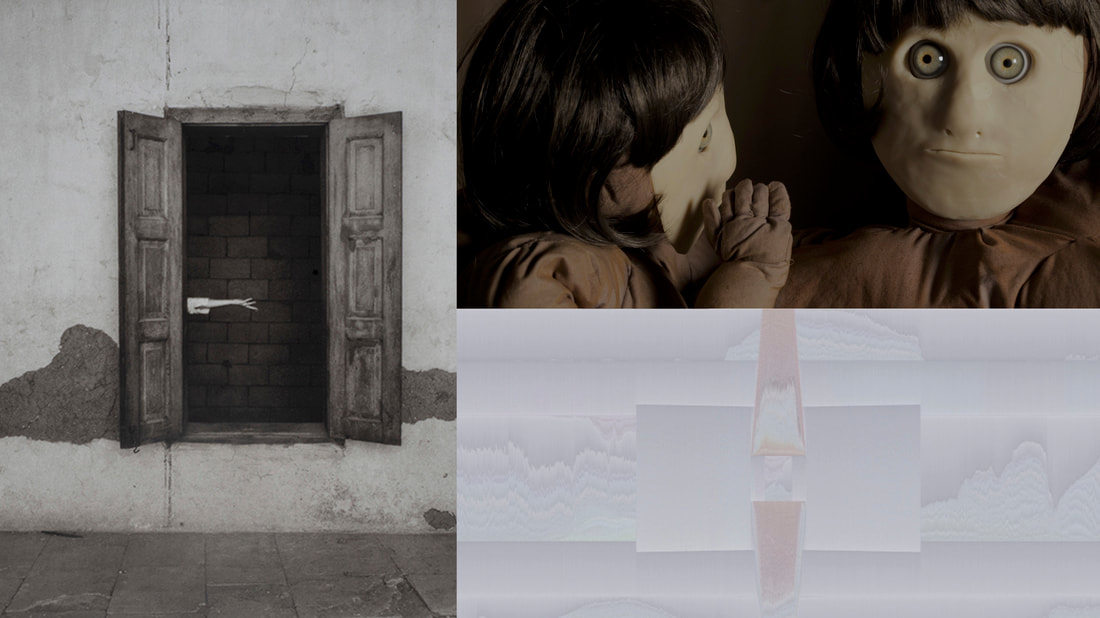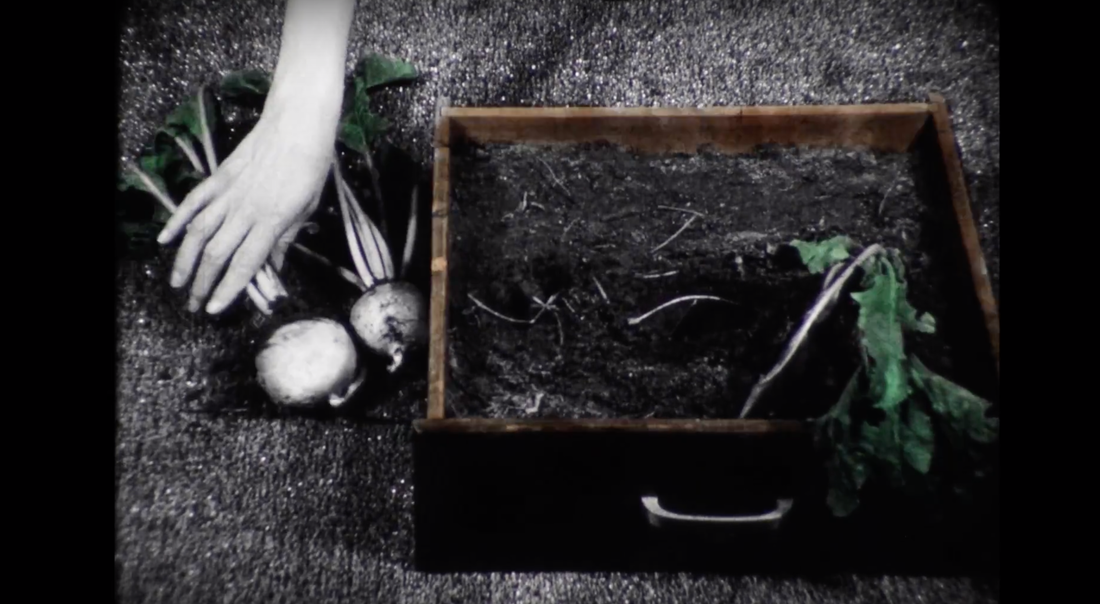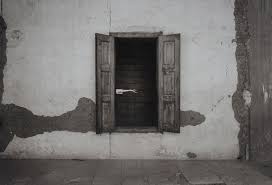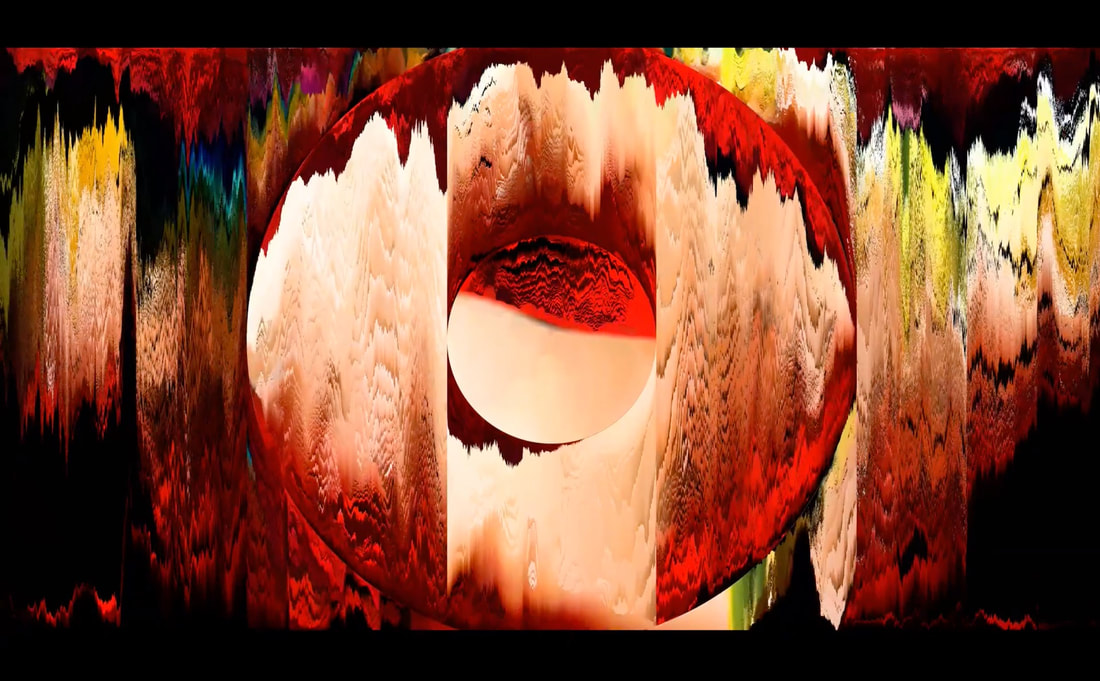|
Where to From Here podcast host Jes Reyes talks with Atlas O Phoenix (they/them/theirs), a multi-award-winning director, writer, producer, and editor who creates films that examine the dark and light places of their humanity. These films are personal, powerful, and uninhibited. Additionally, they were an actor and performer for the legendary Dykes Do Drag (2017-2020) and The Naked I series (2018/2020). Atlas' current film is Ordinary (2022), a documentary about my transition and mental health journey of 40+ years. It is a mini version of their film Beautiful Boi (in production).
Episode Links: Instagram: @beautifulboiatlasphoenix Website: https://www.beautifulboi.com/beautiful-boi-documentary Genderful Podcast: https://genderfulpodcast.com Theme music by Jes Reyes. Original recording date: January 8, 2023. You can listen to this podcast on YouTube, Apple Podcast, Spotify, or wherever you stream podcasts. Instagram: @moonplaycinema Email: [email protected] www.moonplaycinema.org Auto-Generated Transcript Jes Reyes 00:00 (start intro conversation clip) I'm excited to know that you're considering using some of this for your film because, you know, I watched all the films that you've shared with me and and I'm, you know, I, I know that you will come from this narrative film background and then you've been, it seems like you've been kind of transitioning into more of like this expanded documentary kind of format so we can talk more about that that's my interpretation doesn't mean that. Atlas O Phoenix 00:27 No, no, that's, that's fine. I'm still trying to figure that out, too. I was saying last night, I've been watching internal Sunshine of the Spotless Mind kind of on a loop. And I was just like, I can't wait like I have a couple of ideas...(end conversation clip) Jes Reyes 00:45 (start opening intro from host) Welcome to a new episode of where to from here. It is 2023. This is our first episode of the new year. It's also our 20th episode. This is Jes Reyes, and I'm the host. Today, we have a wonderful conversation with Atlas O Phoenix, a multi award winning director, writer, producer and editor who creates films that examine the dark and light places of their humanity. These films are personal, powerful, and uninhibited. Additionally, they were an actor and performer for the legendary thanks to drag from 2017 to 2020, and The Naked I series. A Minneapolis based artist, Atlas is currently working on a film called Beautiful Boi. I am fortunate to have been able to share conversation talking in great lengths, with Atlas about the various stages of the film, and where they are going with this film. Their most recent film is called Ordinary. It's a personal experimental essay, a patchwork of intersecting identities. Ordinary weaves together multiple storylines to explore the purpose of identifiers and their meaning. Atlas questions in this film, whether identifiers truly identify anyone. There are a lot of questions in Atlas' work, as well as truth telling. I hope that you enjoy this conversation, and learn more about Atlas. I was a newbie, to Atlas' work, coming into this conversation, and have really enjoyed getting to know them in this way. Enjoy. (end opening) (start conversation) I'm so excited that you know that we're in this space together. I know I've mentioned via email that I've known of your work, and I hadn't yet felt connected yet. And I hadn't been able to watch your films yet. So I feel like I feel like, oh, I wish I would have seen your work prior to the last couple of months. But I also feel like a sense of a new discovery. I don't know, if you know, you get really excited when you start to see new work from an artist who was established. And it's just really inspiring. So I've just been excited to see your work. Let's get started. We already have gotten started. But let's talk - let's do some questions. And I'm an open book too. So if you...I just made the assumption that you're an open book, but I am an open book. And if you have any questions while we're going through this, please let me know, I'd be happy to talk about Moonplay, or myself as an artist or what have you. But this is all about you. And I'm just wondering if you could talk more about your background in film. Atlas O Phoenix 03:43 Sure. Jes Reyes 03:43 Who are you? And, when did you first start working in this area of art. Atlas O Phoenix 03:49 I mean, it's a goofy story that I...it's not so much goofy, it's just...here's the story. I was an only child. And so I would get home around like 2 o'clock. And I'd have to have my chores and dinner on the table by 530 Because my parents got off work at five. And so I got home from school and I was bored. And I was so bored that I started looking at a telephone books like the yellow pages and the white pages. And I think this was the Yellow Pages. And at the beginning of the Yellow Pages, there was these shorter pages that had a listing of all of the arenas with, you know graphs, like the right side of the stadium, and just all these other like government offices and whatnot and the colleges that were listed in in our town in Dayton, Ohio. And I thought to myself, you know, I was like 16 or whatever, and I was like, you're so bored. Just go take a nap and then we can get up to do chores. This is ridiculous. You're reading the telephone book. Kids at school, find out about this. I put the telephone back. And I went and took a nap. And I woke up giggling and I was just like you're so in love with Prince. I bet that school doesn't actually exist. And so I go to my school library. And there's a huge book that has all the colleges in the country listed and super thick book. And so I'm going through I get to the M's, I get to the MI's, I get to the MIN's. And I find Minneapolis College of Art and Design, the school that was in my dream. Jes Reyes 05:28 Whoa. Atlas O Phoenix 05:29 And so yeah, since I was like, what! And so I looked at the degrees they offered, and one of them was film/video, and I was like, I'm going to the school in Minneapolis, Minnesota, and I'm gonna film and video. I'm going to become a filmmaker. And at the time, I think I just referred to myself as like, like a director or something. I wasn't really sure. I just knew I was. Yeah, and, you know, I always loved films, and my mom made me, you know, pay attention to films, you know, like back then we didn't really have...we had cable. But there was a lot of really cool like old films from like, the 20s and 30s, and whatnot and silent films. And so we'd watch like Matinee de Bijou, we'd watch all the like Abbott Costello, Laurel and Hardy and Harold Lloyd. I think it's Harold Lloyd or Harold Floyd. And then we'd watch the stuff on PBS. And then I'd watch all the Alfred Hitchcock's and then all of the Stanley Kubrick's and by that time, I started going to the theater by myself around the age of 14 or 15. And so I would just go to the theater by myself, and one day really changed my life. And I can't remember if it was the dream that happened before or after this incident. But I was at a theater and I don't even remember the movie I was gonna see. But there was a black and white trailer of this, you know, skinny black guy with a, like one of those biking baseball caps, little flip things on it, and these big ass glasses. And he had a pack of tube socks, like white tube socks, he's like, "I'm selling these tube socks, I gotta finish my film, you gotta come check it out. You gotta come check it out. It's called, She's Gotta Have It. She's Gotta Have It. So it can be in your theater soon." And I was like, What?! And what I saw was that, you know, I didn't realize it for the first time, but as I was becoming familiar with racism outside of my home, because I wasn't taught that inside my home to be against someone because of their color, or whatever. It was like, do you get along with them? And it was like, Well, yeah, you know, and that was never even a question to even ask, I just, you know, hung out with people I got along with. And so this was the first time I actually realized, oh, this individual is black. Like, that means I can make films because I'm also black. And so that kind of like that synergy between the telephone book, the dream and seeing Spike Lee's trailer for She's Gotta Have It. It just kind of formed this like pyramid of like, me, and like what I was going to be doing with my future. And you know, I was making films. I made my first short film, which is really a feature at this point, it's 46 minutes long. And I made that with the help of a Jerome Media Arts Grant that I got in 1999. And so I shot the film. I think it was late 1999 or 2000. I think it was 2000 that I shot it. And I went a different approach with it. I didn't have a lot of money. And I was very intrigued by something called Dogma. 95. I don't know if you've heard about it. But just for reference: Dutch filmmakers created this, and it was a way to strip away the slick Hollywood process of making films and use digital cameras. And they had the 10,000 Chastity, and it was, you know, like you had to shoot with natural light. You couldn't move the furniture in any of the scenes. If you wanted music, it had to be playing during the scene. Costumes had to be brought, like actors bring their own wardrobe to their own makeup, and just a whole bunch of other really cool things. And I thought oh, I can do this. You know, my friend Deidre, who's an executive producer on Beautiful Boi - known Deidre for almost 30 years now. And she was like, Yeah, sure, you can use my house and their son, who also transitioned and is trans masc now. I used to babysit Atticus when when he was really little. And so I put Atticus, his friend and Deidre up in a hotel, and I took over their house for the weekend. And then I created Chord which I finally decided to put on my website under my pay plans that I have where people can pay $2 $4 or $11 a month to support my work. And so I put that up and that was the first film. And I'm actually thinking about going back and remastering the film and of cleaning up the audio and the images, you know, it's degraded in the sense that it was shot on Mini DV. And I recorded all the sound I had, I think I had a mic that was recorded, recording all the sound into the camera. And my, my person who was helping me out, there's one point where we took a break. And then when he went to plug the mic back into the camera, he accidentally plugged it into another connection. And so the sound is there, but it just sounds different than Jes Reyes 10:34 Yeah. Atlas O Phoenix 10:35 And so, so yeah, so I made that. And then I showed it at Intermedia Arts for the first time, I think in 2021. And then like the winter, and I was, I forgot how I got that space. I don't even know if I had to rent it. I think I just had to show up. Jes Reyes 10:51 Yeah. Atlas O Phoenix 10:52 And, and then it was also I had submitted it to Women's in the Director's Chair when that was a thing at the turn of the century. And they rejected my film. So I ended up getting into Women in the Rejected Chair, which was upheld and run by Lisa Ganzer, another local filmmaker. I don't know if Lisa is still in town. But I showed Lisa, my film, and it's called Chord, and Lisa was like, "Oh my god, I sat down I watched it. And I got up and went to the bathroom and came back down." I think she saw it two more times after that. And so she reached out was like, "I would love to have you be in this thing." And, and so yeah, and it's funny. I was put putting all my journals together for a dear friend of mine to read. And I came across like the flyer for the Women in the Rejected Chair. And I wrote a little note and I said, Hey, isn't this funny, like this year they're doing a retrospective of all the Women in the Director's Chair at the Walker. And this was 2020. And they asked me if I could get together a four minute trailer of Little Men to submit it because they saw the whole film, but they didn't have space to show the 24 minute film. So they said can you cut together like a little four minute thing? And I was like, yeah, absolutely. And so it was weird. Like, you know, something like 18 years later, it came back full circle. But, you know, when I when I created Chord, I actually ended up taking a break, had some like mental health crisis that I needed to deal with. And I didn't come back and I wasn't sure I was going to come back to filmmaking until 2017, when I sat down to pen the script for Little Men. And you know, I don't have children of my own. But I knew what it was like to be a child and I knew what it was like to be outside an outsider. And both of these young boys are outsiders. And that's what brings them together besides the fact that they live in the same building. And they're, you know, fundamentally different people. And I had a joy of writing that script, I will always say that little man made me made me a writer. I've been working on a script of my own personal story, trying to create a narrative of my life, but it wasn't working out. But I've been writing it for like, four years and I you know, didn't take screenwriting classes since like 93. And so I am so I'm a self taught filmmaker self taught screenwriters, I'll top producers I'll type editor. And when I created Little Men, I wrote the screenplay. And on a whim, I applied for the Minnesota State Arts Board, Artists Initiative Grant, which was like a $10,000 grant. And I had written the grant out and then ended up connecting with my friend and mentor David Lawrence Grant who connected me with Mary, amen. And what was interesting was that Mary Aman was my screenwriting teacher in like, 93. And so and I got a, I think, a B or something on the script I'd written at that time, which I would later develop and turn into chord. And so I was kind of giving myself a hard time in my grant proposal, but how I just totally messed up and I just need this chance to get it right. And so when Mary read the script, because of our history, you know, and we hadn't been in touch in years, decades, even and so she was just like, you can still have such a hard time like I saw. I thought, good to toot your horn and blah, blah, blah. And so I went back and completely redrafted it, and I got the grant and that's how I was able to make my first film in 18 years. And that was little men and little men has won something like two honorable mentions three awards, it's traveled as far as the UK and Romania as close as Minneapolis at the Minneapolis St. Paul International Film Festival and my poster for it has more laurels that images and and I'm kind of freaked out a little bit by it you know every now and then like I just be like what's your poster house so many laurels Well, you got nominated for like six things like let's not talk about this this is weird. So it was like I was in a funny place looking at that poster and I had not yet made Do I qualify for love is like boom. I had made it as a monologue. My friend Sally Barddhaman asked me to write a monologue for show she was doing a spoken word show. That was called Don't you want me baby. And so I wrote this monologue. And it's, you know, about a night my parents attacked me. And it's also about someone that I was in love with am in love with at the time and, and so I created this piece. And then I submitted it to the naked eye for their last naked eye show for 20% theaters, and the last naked eye show, which was, I think, the second or third to the last show, they would produce. And it got in and, and then the pandemic hits. And so we were supposed to perform it on stage, and Pandemic hit. And so, about six months later, Claire evitable reached out and said, Hey, can you all video, record your pieces, and we're just going to stream them online, on YouTube. And people can like watch them there. And that's how do I qualify for love became a film and I knew immediately I was like, I don't know what anybody else is gonna do. But I really want mine to stand out and to to be on par with everyone else's, and to be artistic. Like, okay, I just want one single camera angle, I don't want any music, I'm just gonna use my phone. I didn't have like a lavalier or anything. So it's naked sound on the phone. And I shot it, I thought I shot it before, okay. And it's just a ring light that lights the whole scene of the lowest setting. And the ring light is next to the phone. So, so I just sat on the floor at that time, my apartment, I just moved in, and my apartment was very bare. And so I just sat on the floor and waited until I live across the street from a strip mall. So all this traffic and everything and Loring Park. And so I waited until it got quiet and everyone went home. And the interesting thing is, you know, my friend and I hit sustained a break up in 2026 months before I was to make this video. And the morning that I was going to make it I woke up and I had two back to back really bad dreams about them. And that was like I was you know, going after them. And they were going through different buildings and houses and changing wigs and changing clothes and changing cars. And I was just running and running after them. And they were running and running away and driving away. And I ended up reaching out. I was doing Dialectical Behavioral Therapy at the time. So I reached out to a good friend. And then I reached out to my therapist who called me back. And then I decided just to stay in bed and just listen to sad music and just feel my feelings. And so by about 1030 that night when I went to record it. That's why it dances between a performance and an actual just retelling of what happened. And so all of the real heavy emotion, especially when it referred to my friend, and the film is not a performance. It's it's of what happened early that morning. And so, so yeah. And then that went on to also get in the Minneapolis St. Paul International Film Festival. And I was privy to an email where I had reached out to the former person that was the head of the operations there. I think the director, and I had reached up to say something about the film. And she reached back and then craig rice jumped in and was just like, Is there a problem? Because I want this film in the festival? Yeah, I was like, Whoa, you know, and I've known Craig since 1992. Yeah. So he's been my off again, on again, mentor. And we actually got into dialogue last year. And I said, Thank you so much for programming my films. He's like, Absolutely. It was my pleasure. You know, and I just submitted ordinary. And so I'll see what happens if it gets in the festival in a couple of months. I'm excited to find out if it does and, and then it also went to the UK I seem to do well in the UK with my films. And then other places in the States. And so yeah, that's got about 10 morals for that film. And one of the film festivals I submitted to actually gave me a screening fee for it. That was the first time ever got paid. Great. It was for 250 bucks. They paid me for it. And I was just like, whoa, wow. You know, and then I was also showing it. I showed little man on the walker website for two weeks. And then I showed or in our beautiful BB sorry so many films that three years showed Do I qualify for lob somewhere else locally. And then I was supposed to I was given an application to apply for a cabaret to do a piece of the cabaret and It was through off kilter cabaret that was part of off leash productions. And it's run by, oh, I can't remember how to say Jennifer's last name. It's like Jennifer halts. And all I can't remember Paul's last name. So sorry, but they husband and wife team that run off leash productions, and they were creating this cabaret. And the focus of the cabaret was to focus on disabled artists creating work. And the theme was Oregon recital. So we had to pick an Oregon of ours, and talk about its impact socially, personally, privately. And I thought, oh, skin, that's easy. You know, it was right on the heels of what happened with George Floyd and his brutal murder. And I thought, oh, yeah, this is something I can talk about. And I can address like, a whole bunch of different things around skin color. And as a couple of months went by and actually sat down to write it. A few weeks before I had to perform it, we had a 10 minute limit. And I was like, 1520, so I had to keep, you know, cutting away at it. And then I was just like, you know, you need to talk about something more than the color of your skin, like really think about this. And so I talked about not only the racism that's given to me by both black and white people for not being black enough. Or being too white, I also have you know, that that phobia thing, and then I'm trans transitioning, so I'm getting top, I had top surgery, and then at the time, I didn't have that time, but I was going to get it. And now I'm going to get bottom surgery later this year. And it was like, your skin is being lifted from your arm to create a phallus, that's the thing, you know, skin tissue, and then you're having your skin, you know, sort of cuts and then rearranged to make a flat chest and then and then you're also you know, identified as homosexual. So you're having sex with people that may or may not be the same gender, and now that you're changing gender, it doesn't even matter what gender the person is. And it's all like skin contact. And so I just created this kind of like, breadth of like, aspects around skin. And, and then I got COVID, the day before the show. And they asked me the night before, they said, Hey, can you film it and turn it into us by like, you know, 10am or whatever. And, you know, I said, Sure, and I'm sick with COVID. So it was a little diluted, like a little delusional. So I wrote out this 67 shot list, and I was like, Okay, I'm gonna wear my phoenix wings. And I just have to wait for this backdrop to come from Amazon that I ordered to come in at 11 o'clock. And I was like, 11pm. And I was like, Okay, this happened. About 1115. I got a notice from Amazon that it wasn't coming until the next day. And I was like, No, call me 67 shots. Like, even if you weren't sick, you went shots in a day. And I was like, You're right. What do we do? And I was like, Yeah, you shot all this footage for beautiful boy just use that footage. Yeah. So I cut a very rough edit for the show, no music, no transitions, just cut, cut, cut. And I recorded myself the night before. And I was very relaxed. I do medicinal cannabis for C PTSD and anxiety. And so I had done it that night and just kind of was relaxed. And then that's when the sense of humor that you can hear in ordinary comes out, because I'm looking at this. And I'm like, don't deliver this hard. We all know this, this deliver this very softly with a sense of humor. And so that's what I did. And I knew I had something special when I finished the rough cut of it. Because I was feeling all of these different things when I was watching it, even though it was watching me. And I was just like, This feels really good. And I given it to Paul and Jennifer. And they told me during the weekend that my piece was getting I think the heartiest applause of all the pieces, and that members of the audience went to talk to Paula Jennifer and they said that they loved the humanitarian approach that I took with the narration. And I said, Okay, that's it. You've got to get this ready for Sundance, like Sundance had a open call for submissions for the film festival this year. And I've been in conversations with Andrew Peterson over at film North who used to be on the programming board for Sundance. It looked at Do I qualify for love and little men the summer before? And he was just like, yeah, you need to kind of do these things. If you wanted to get into Sundance, I said, Hey, look at ordinary tell me what you think I need to do. Yeah, he did. And he said, you know, make it richer, like the color of it, like make it richer, and smooth out the sound with the music on it, and then show it to me when you're done. Yeah, so I, you know, got several grants between late 2021 and early 2022. I what happened? I got these grants it to make beautiful boy. Yeah. And trying to find the Kinect here. But I needed one of the grants, I needed to make a fundraising film. Or beautiful boy. And is it this is it this is your fundraising gum. And one of the grants that I did get, at the beginning of last year, this individual reached out to me to say, hey, congratulations on the grants. If you need music for anything, let me know like your project sounds really interesting. And I said, okay, so he had sent me a piece of music, and I was half asleep when I listen to this, oh, this is this is cool. This is cool. I was really trying to work with a Ukrainian artist, left some who has music on Patreon. And some music was very, it's the music that I use for the trailer for beautiful boy that's on my website. Yeah. And so I got, you know, got better with COVID and started editing. And I was like, You need to talk to Simon. So I reached out to the individual who's named assignment and spur all and I said, Hey, I listen to all of your music on SoundCloud. Would you like to work with me? And so we got together, we had coffee, and I was ready to pay Simon, whatever he wanted, I was just going to find the money. I just needed to know how much it was. And he's like, kind of struggling a little bit. He's like, I know that my work has value. I like your project. And I really want to help. And so we're walking out of the coffee shop. And I said, Simon, do you want to do this pro bono? And he's like, Yes, I do. Let's do this. Yeah, that's, Jes Reyes 26:35 that's really what it came down to is. Atlas O Phoenix 26:38 That's what it came down to. He didn't know how to offer. Yeah, feeling like he didn't like he wasn't showing value to himself. And I was like, yeah, you've had value. And I don't want to take you for granted. But I'm just going to ask you this direct question, you know, and he was just like, it just burst out and we ended up giving her something. And so he crafted this beautiful soundtrack for me. And then my friend made it gifted me her song get loud, which is at the ending credits for ordinary. And so I smoothed out ordinary and made the black and white richer, I put like transitions between everything. And I made some of the shots that were shaky, I just made them still shots and just zoomed in. And so all of the footage except for the, for the footage of me walking down the beach is actually shot by me. And so I didn't have the ability to zoom in or pan in or you know, whatever. So I actually used Final Cut Pro, and I zoomed in a little bit and panned a little bit if I needed to, and that kind of thing. So there are all kinds of like, editing tricks that I did to make it look like Yeah, what else shot at? Yeah, so So that's, Jes Reyes 27:52 I have a question for ya. I'm learning so much about you, and your and your films and just sort of your process and all these opportunities that you've been able to experience over the years. And what I am fascinated by is all of it. But I'm also curious about just you wear a lot of hats. As a filmmaker, you're it sounds like you are the writer, you are the editor, you're the director, you are producing, what am I missing? You? Do you do at all? Are you the person behind everything? Yeah, actually, yeah. Yeah, I can relate to that. I yeah, I think Atlas O Phoenix 28:33 it is important. You know, like, I had a staff, a whole crew of professionals that were working in the field on every day on a regular day rates. And I was giving everybody like two or three or $4,000 for the whole shoot. And the shoot for a little man was like six days. And so it was just like paying people what I could afford to pay out of the grants. And then, you know, also getting donations from generous folks who didn't know me from Adam, some of these people didn't know me, but they heard about me from another friend who donated. And all of a sudden, I had amassed almost with GoFundMe being over $1,000 and about 2000 or 3000 private donations, plus another like two or 3000 of my own money. I was able to create little men, but I had to teach myself how to use Final Cut Pro, because I hadn't really used it before and I'm struggling with it. So I was just like, you need to learn how to do this. And I had audio files for my sound guy video for my, my DP and then my scripts and then like the storyboards that I had another person who was also trans identified create this beautiful storyboard for us to try to work off of everything. And I ended up watching a tutorial which was about an hour and a half long from the UK about how to use Final Cut Pro. And that's how I taught myself to like, adjust it for what I needed for my purposes. And so yeah, I had to learn it all from scratch and now I use it regularly with my projects and I just finished it finished a gig for a spy thriller that's not mine, but it was someone else's. And I was fresh off of editing ordinary. So I felt competent to take the job on and, you know, I was able to make something with it and, and that he has to take it to like a colorist and a sound designer, because I just ran out of time to do it. I was just like, you need to take this to someone who had whose skill level is higher than mine to do what you need, like, it's okay for my work, but I know that you need something for yours. And so and so. Yeah, so yes. Writer, director, producer editor, sometimes I act. Jes Reyes 30:33 Yeah. Performance. Yeah. You're a performer. I mean, I just feel like there's such a, a rawness to what I've seen so far. With. Do I qualify for love? There? I mean, there's a level of, of performance, but you also talk about how it's really in the moment you are, it's almost confessional, you know, just sitting down in front of that camera and just being in that moment. And then I know that you've, you've done some other performance based work stage based work, right? Monologues? Yeah, yeah, you want to talk a little bit more about that? Atlas O Phoenix 31:17 Sure. i It's really funny how I met my friend, because it started with meeting someone else years earlier, on OkCupid. And they had a partner already. So they said, Hey, let's, let's be friends, let's go hang out. And so we hung out, which led me to meeting some of their friends and getting really reconnected with an old acquaintance who said, Hey, you should come to Girl Scout with us, which got me connected to my friend, kit NAS, which got me connected to my friend Patricia, because kit for getting us set me Patricia up on a blind date. And then on the blind day, I'd actually met Patricia that night before it likes to drag when I went to go see the show. And I had wake in the day of our date, I was like, oh, cool if they had a bunch of calves, and like, there was a cat lady who was singing a door to her cats. And I thought, oh, that's kind of cute. My cat was laying next to me at the time. And, and unfortunately passed away a few months later. But when I met Patricia, you know, we got to talking and everything. And it was it was good time. And I said, Oh, you know, I have an idea of like, excuse me for saying this. But I do have an idea that maybe taxi drivers would be interested in exploring. And so I shared the idea with Patricia. And then we had some kind of weirdness that happened. They just gotten out of a serious relationship. And I wanted to be friends and they weren't really, really ready to take on new friends. And so like we kind of had this falling out. And then my friend who got me in connection with all these people that got me to Patricia said, Oh, just for just Patricia petitioners old graduate. So just reach out to Patricia and tell tell her that you're interested in like talking to them about the idea. And so I did reach out to Patricia, she was totally cool. And copy in contact with Nader who talked to me and had me pitch the idea to Nader and the name was oh, you have to be in the show. And I was like, Oh no. Like, if you I need credit, I just think it'd be funny to see it. Oh, no, you have to be in the show. And you have to come you have to be in the show. And that's the Dykstra, the tomboy kitty, who ends up having sex with one of the feline kitties on stage with me kitties on stage. And my inator is a is a cat woman who's you know, in a row with her hair all over the place and is seeking Princess adore. And so and that's my introduction into that and also my friend too. And so because they were index do drag and so it was like this weird kind of family energy thing. Thanks to Jarek and I was in there from 2017 until the finale in 2020. And my friend and I had actually made a piece called raspberry DeLorean my friend was Marty McFly and I was Doc Brown and we had sent everything in the big wig and everything. And I was a saying the words to raspberry direct ray but as as I was recollecting a memory turned a vibrator into a time machine. My friend was like so topical last time you had a cutie and then I got and then I go into like, I was working part time at a five and diamond that I would get suppressed variable rate I'd be like, audience would laugh at it. Again for the finale, and so so yeah, that was a great, that was a great piece. I had a lot of fun. And I also did a dry run of Do I qualify for labs and monologue that that particular show too. Yeah. So So yeah, so I've done that. I've been on stage for the naked eye in 2018. And the reason I decided to audition for that was because I was in Dexter drag, and I decided, oh, you know, I'll just try it, I probably won't get it apart, but I'll just try it anyway because my other friends were going and they were excellent performers who were awesome, thanks to Jack and they actually didn't get a part but I got a part as a solo piece. And and then that kind of catapulted like the acting performing thing. And so and so yeah, so I do that whenever I'm asked to whenever I have an opportunity to apply. And that's kind of been, Jes Reyes 35:26 yeah, I think about how with performance, and also video essay, you've had the, you know, your, your more sweet, most recent works have been very their video essays or film essays. And often folks who are exploring in that genre, you know, it's, it's a form of like a self cinema, you know, like the first person cinema. And I think about how often that can play a sense of performance, because you might be narrating, or that filmmaker may be narrating and might be telling the story of something that's happened to that filmmaker. Not always, it's not always that situation. But I've, I'm seeing that in your work. And I'm curious to know more about sort of, sort of what that process has been like for you to sort of shift into this essay form. And in placing yourself within those films. Atlas O Phoenix 36:39 I think it came out of necessity, because I had to turn to I qualify for love into a film. And it was doing well at festivals. And I also shared it with friends of mine. And a lot of the feedback like I have a couple of folders in my gallery. And one folder is Do I qualify for love with all the screenshots of things people have said about it, and the other one is ordinary? And when I saw the feedback coming back, or do I qualify for love, and I had decided to transition in late November, and I just needed to talk to my doctor the following February, which I did. I had come out to about 35 Close friends the day after Valentine's Day 2021. And then I decided to do some research for like, you know, what, what's, what's it like for people my age? And because surgery leaves keloids for people that have darker skin. I was like, yeah, what can I find? About top surgery, bottom surgery for people my age, and for people with my skin tone. And I couldn't find anything. I think I found like a four minute interview that had something like three or four different trans mask books. They were all African American. And it was the interview, the article was called, you know, are we leaving something like, are we leaving black trans mass books behind or something like that? Are they invisible? And then that was pretty much it? And I was like what? Yeah, so I sat on it for a minute. And I was just like, you're an award winning filmmaker, and you're transitioning, why don't you just make your own film and give it to the masses. So that people like you can find something it no matter what age they're at, whether it's 10, or they're, you know, 70, they have this reference point, decide to transition at 70. If they decide to transition to 10, they have something they can look at. And then then it became this thing, and I still hadn't figured out what the movie was going to be about. I had to work through that, and 2021 and 2022. And I took a course with Sundance, Sundance Institute offered a documentary lab and documentary course called Developing your story. And it was great. I realized about halfway through the class, I was like, Oh, I'm a little further along than other folks, because I've actually made a body of work or some folks, they had made work for other people, or they never made work for themselves before made work period, where we just mess around a little bit. And so I was paying attention in class and jotting down the notes that I needed. And then started to understand, like my story started to develop my story. And I actually talked to my instructor, David Finch. And I said, Hey, would you like to see my other films, you know, and I was just loving his sensibility around filmmaking in general and his passion for documentaries. And so I thought, well, maybe he'll like, do I qualify for love or he could tell me like what I should do differently in future projects. And long story short, he is the consulting producer for beautiful boy. He loved my work, all of it. He saw little men do I qualify for love and ordinary? And I just loved it. And he said, you know, you're a great filmmaker with something to say, and it's very What you have to say is very powerful. And, you know, having someone who has 30 years in the business as a documentarian, as award winning documentary filmmaker, who's teaching this class at Sundance, you know, say that I'm a great filmmaker, I had to literally sit down and take that in, and we were on a zoom call. And, you know, we talked a little bit before we started the interview about this associating on some things when it gets like, kind of like a lot. And, like, I was like, you cannot disassociate you, I refuse to have you disassociate, you need to actually listen to what this person is, even if the compliment is hard for you to take, you need to listen to this, you know, and I kind of just decided to fall into it. And when I started talking to my other executive producers, and some close friends, they were like, Yeah, that's what we've been trying to tell you. And I was just like, okay, but like, Okay, I'm not saying that this person is worried is more valuable than yours. It just seems like, Oh, I'm actually hearing it. Yeah, again, for the umpteenth time, you know, and for my instructor, and, you know, David was like, you know, I was told by the Institute that I would have people approached me to ask me, you know, I want to be working on the projects. And he's like, I'm more than happy to work on your project, because you have a vision, and you have a goal of what you want to do. And so you're already prepared, you just need like, we talked about whether he would be the producer, but since he's in Canada, he couldn't produce it. You need like an advisor or someone like a consultant like to bounce ideas off, because you already know what you're doing. And so we decided to have him come on as a consulting producer and actually need to reach out to him this week. But yeah, so I introduced him to my other executive producers and my other producers tonight, who helped me produce little men, that some of the executive producers are also execs for little men as well. And so I have my team together. And these are people that I love dearly, who loved me dearly. And we've known each other for, in some cases, decades. And so. So that's how I have my team now. And I needed to take a kind of a break from, I think, October to December because I was just like, so inundated with so much. And this took some time to reflect on beautiful boy and my body of work that I've created. And I tweaked my read website and put core it on the website and then created a kind of a paywall, but really just a patron plan without going on Patreon. I just putting my own like Patreon on my website. And then I'm creating that and I have so far I have three subscribers. And so that's great. I do have regular subscribers that can subscribe to the to the website to get information about it periodically. But I have paid subscribers now. And so what is your website address? Beautiful boy, boy is b Oh, I see beautiful boy.com. Jes Reyes 42:37 Okay, great. So the folks who are listening can go check that out. Yes. That's cool. Atlas O Phoenix 42:43 See trailers of the work to see whether you want to support the work. Jes Reyes 42:49 Yeah. How long? So beautiful boy, do you do see that? It's going to be a feature length film, how long? How long? Yeah, for sure. Atlas O Phoenix 42:59 I feel like around the 90 minute mark. And I also, I record footage nearly every day. And so I also see a mini series with that as well. So I have enough to make, like 15 minute episodes 15 to 30 minute episodes, yeah, they'll have enough to make a well rounded 90 minute feature. Jes Reyes 43:20 Yeah, I think also with marketing, the film, having those different variations of how it can be presented as really rich and valuable. I feel like you could mark it in so many different ways. That's really cool. Thank you. I'm hearing also different ways of resources that you've tapped into to make your work. And they sound the resources that you've used. It sounds like crowd funding, it sounds like grant funding some personal personal finances. Can you talk a bit more about the resources that you've used as a filmmaker to get your work out there to get get it made? Atlas O Phoenix 44:02 To get it made? I you know, I remember, like applying for the original grant, that was a $10,000 grant for a little man. And, you know, I was like, I don't want to show them chord, because I just I don't feel like it's my strongest piece. So all I had was the first 12 pages of a 40 page screenplay. And I said, well, we'll just see what happens. And you know, I know it was competitive. I had applied many years before and was like, Don't Don't worry about if you don't get it. And then I you know, dressed it up after talk to Mary, amen. And then let it go. And I said, you know, like about when you're going to hear so just check in around that time. And then I completed the scripts, you know, I took another four months to finish the script. And then I just, you know, kind of let it go. And then I was thinking about the grants, which happens with every grant that you end up getting, I think you know, it's okay if you don't get the grant and then about within 15 to 20 minutes later, I will hear that I got the grant. It's like that every single time. And it's, it's really interesting. It's like when you like, kind of like, let go and let God or whoever your higher sources if you have one, that's kind of what I was able to do. And I got an email that was like, congratulations. And it was highlighted. And what happened is I had to read the email a bunch of different times because I just again disassociating from success and being like, yeah, what, how, what. And then I like that night, I was like, you have to get up at six o'clock every morning, if you're gonna get this thing produced and ready to shoot over Easter weekend or over Easter break or whatever. And I needed to have it over Easter break, because I needed 10 year olds to be away from school. Yes, and stuff like that. But like, so I, you know, when I got the grants, I said, you have a grant. So this is actually good, because now you can do the crowd funding with GoFundMe, and you had this grant as backup to say, hey, look, I've got $10,000 I need another $10,000. And once you know, I put it up there, I got about 1500 within the first two weeks, and then kind of slow down. But once we put that trailer together with the footage, all of a sudden donations were flying in, people were sharing it and all this other stuff. And in 2019, I needed to put some of my own money and I serendipitously got a credit card through PayPal, I like didn't even apply for it that I remember all of a sudden it just showed up like you've got this credit card for nearly colors. And so I you know, updated my computer updated my software bought Final Cut Pro updated that. And then anything else that he needed. So I got studio monitors and pedestals for that. And I got a curved monitor and a bunch of other things to edit the film. Yeah. And then and then that was a thing. And then do I qualify for love only costs $28 that I borrowed from a friend to buy a ring light and paid them back? And then do I qualify or ordinary was just footage I'd already got that I shot myself. And so I have been getting funding like I actually am not pushing my GoFundMe as much as I used to like I did it like the first two weeks, and then I just kind of felt weird. And I thought like, I don't know, I don't know. So I still have a GoFundMe out there. And I can give you the link to that. But it for the podcast. Oh yeah, definitely. I need to start promoting that again. And I'm also like doing the donations where people can go straight to the, to the beautiful boy page on the beautiful boy website where it talks about the documentary has a trailer, and there's a Donate button and you can click that it'll go straight to my PayPal account. My whole thing is to cut out third parties. And so that's why I wasn't paying attention to GoFundMe anymore because it just like, there's like bees for that. Plus, there's fees for this and it's just like, one of these has got to go. And so I would cut just cut these books out. And and then you know, I started realizing, you know, like one of princes passions was emancipating himself like he has an album called emancipation when he got when we broke free from Warner Brothers Records. And lately my my food for artistic thoughts has been watching reels of him on Instagram talking about the record industry. And I remember when the Pixies first did their their website, they didn't have a record company anymore. And people were buying the music directly from the Pixies website. Press picked up on that and then had one 800 New funk website where we could buy his music directly and all kinds of really cool things that played off the new power generation store that used to be in uptown. So So I was like, You know what, you're gonna do this. And so what I decided to do this year is I'm going to be selling beautiful merchandise, beautiful boy merchandise of T shirts, stickers, candles that are going to be designed and made by Kobe candle company which has just been taking off since 2020. And it's a black femme owned Candle Company. And so I've been talking with Cobis mom, Tasha and they want me to pick out scents and create a limited edition scented candle specifically for a beautiful boy. And then I'm also going to be baking pins with Gigi from Minnesota pens that are pens, strictly limited edition for beautiful boy and, and the T shirts. And then also, I am going to be offering pre orders of the feature for beautiful boy on my website within the next month or so. And so so basically I'm not just my own writer, director, producer, performer subject. I'm also my own distributing company and I have I'm just like just come get it off my website like I don't I don't like it's great to be able to have like a Fox Searchlight or to have like, you know, a strand releasing but I'm like I can actually do this My oh my own and I can facilitate it off my own website and that I could have, you know Kobe send the candles or, you know, print send like there's a company called print. And they can just send the T shirts. And I don't have to worry about like wrapping things up and sending it, they'll take care of me I can even make on demand. It's on, it's on demand. Yeah, like even makes sneakers if I wanted to. And so it's these are the things that I'll be offering. And they should all be up and running by pride Jes Reyes 50:28 this year. Wonderful. Atlas O Phoenix 50:30 Yeah. And so I just putting it all together. And so so that's how I'm going to be getting funding through that way too. It's still through donations, and still through grants, you know, applied for some grants that I'll be hearing about in the next couple of months. I'm writing out one of the grants that I got, May of last year, and and then I'm going to start selling shares of my film to investors as well. Wow. Just solidifying a budget. And you know, I want to do all kinds of really cool things with beautiful boy, like, I want to interview peaches, I want to interview Robert Plant from Led Zeppelin, I want to, you know, talk to people about love, ya know, and that's the thing, it's not you know, like it for me, my journey has been my, I've had a mental health journey from 2020, to today. And I actually graduated from DBT trauma therapy and regular talk therapy last year, like I graduated from Dialectical Behavioral Therapy in 2021. And then I wrapped up trauma therapy and regular talk therapy within a week of each other, the end of August and beginning of September. And so, you know, I've been on this journey of like, what does love mean, and what does self love mean? It really happened with the fallout with me and my friend. And so it was just like, going within and trying to figure out like, how was my trauma showing up in relationships? Yeah, so I wanted to be able to talk to people that write these amazing love songs, or that, you know, are such thoroughbred Maverick artists that they do their own thing on our own way. And I wanted to talk more about that and talk more with them, and then share that experience with the audience. And so it's like I, you know, I record on days, I'm having bad days, and I record on days, I'm having good days, and all the days in between, because they're, they're all connected to me, and like this overall, personal shape of myself. And so it's like, beautiful boys about my transition, starting at 50. And my mental health journey of the last nearly 40 years. So it's, it's more than personal. Is DNA at this point. Jes Reyes 52:38 Yeah. Wow. And so many people I feel, well, I'm will respond to it, you know, they can maybe be able to see themselves in the work as well. And you're creating all this different product, as well to help promote and also fund your work. Sounds so entrepreneurial? Yeah, Atlas O Phoenix 53:03 I mean, if you want I can read some of I got the gallery of some of the Yeah, that would you like to? Yeah. Oh, please. Yeah. Okay. Here, this is actually from Paul, who is one of the co founders for off leash and off kilter. And he'd said, also, I don't think I ever told you, but I got nothing but wonderful comments about your contributions off kilter. I think of all the great things people said about how artistically accomplished the editing and filming was, was your generous was your incredibly generous and humane approach to reading the script? Really great. Thank you. And that was from Paul, and one of my favorite ones, was from a dear friend. Here it is, my full bull is in all caps, my full honest opinion. Oh, oh, M F, G. I love it in a whole bunch of exclamation marks, probes visuals were astounding, along with timing with music and background, and what you were saying and a whole bunch of exclamation marks. Excellent choice going with black and white. This makes the impact you wanted good money spent that I didn't understand originally. Then some of the cons were the voice. The sound of the speaking voice sounds like you have a bad sinus infection. I understand a lot of this has to do with hormones and voice changes, and sounds nasally. And so but at the end of it, she says they say I'm so effing proud of you due to relah and they say this without a doubt deserves a war. It's not for the fact that it is special and seldom travel journey. It's because the stat effing good yes. So something like that. And then I think another one this one is funny because I mentioned something about underwear in ordinary know you've seen that and my friend actually sent me an image of a pair of underwear that says a morning choking hazard on it. I I wrote, this was a masterpiece, very personal, insightful and educational, especially for those who may be unfamiliar with anything in the LGBTQIA community, I can relate a lot to what you said specifically to the biracial part very well done. And so that's one of like, I think it's something like 19 different messages that I got from people. Jes Reyes 55:20 Yeah. Yeah, people are responding to your work. And what great material for you to have to as you're moving through this project, and moving through your mental health journey, as well, of just having something to go back to and to remind yourself from all of these voices, and people who are supporting you in your project. Not Not every filmmaker has those kinds of resources. And it's, it's so great that you have those, those positive, all that positive feedback to keep you moving forward. Like I think that's beautiful. Thank you wondering about if you do any mentorship, I there's like, there's such a, you have such an established background as a filmmaker? And Do people ever come to you asking for advice about how to be a filmmaker to be an artist? Yeah, Atlas O Phoenix 56:17 I just had a friend who's, um, transfer them reach out to me last week and said, Hey, happy New Year, I really want to talk to you like I want to make a documentary can I talk with you like, absolutely. And then I was supposed to teach documentary class for the Boys and Girls Club last March, but this teacher strike and then everything with the pandemic, it kind of made it go away. And then I've been trying to teach a LGBTQIA screenwriting class and cinema queer history class, and we're trying it again. But like the classes, I've been told people have been like, well, they're just, you know, a lot of money, and I can't really afford it. And so we're trying it again, to see if we can try to launch it. But this time, it will be a a class that teaches people about queer cinema history, as it's applicable to the screenplay that they're going to create in class, which is going to be like three to eight pages. And we'll pick up like three to four characters, and you can make them any archetype that you want. And we'll give them the same name. But everyone, screenplays will be drastically different from the other person because of what they want to bring to it. So maybe that'll happen. We haven't had any success for the last two years trying to make that happen. But we'll see what happens. And then I've also been invited to teach at Metro State, a personal essay class, that'll be focused around queer identities and that kind of thing. And that will probably happen after my bottom surgery in 2024. And so I'm in the process of putting together the curriculum for that. And then there's a whole process with Metro State to get into it. And so so that's it. But you know, it's interesting. You know, for my birthday, I decided to have a, a birthday party and trauma therapy graduation party, and I rented out the theater in Brighton like ball and had my friends come through, and there were like, 10 of us. And so it was a costume party. So there was a Karen, there was two religious traumas, there was a woman with jogging with pearls, there was someone who was a gig economy, there was a scary cat. And so there are a bunch of different people that came in came like Caymus depression. So it was great. And I'm standing here, I'm like, most of these folks are non binary and trans. And I'm like, Cool. We had a night like this that was open to the public. And that's what I'm creating. And it's called translate. And so people are going to be able to come February for us to Brant Lake bowl, and they can either watch the drag show from home online, or at the theater. But we're going to have a member of some chants in this cabaret put on a show for a couple of hours. They have a free food bar that has tacos, I think a pizza of some salad and hummus ship and Pita. And we're going to offer that to folks that either haven't had a meal that day or for the past few days, and they're experiencing food insecurity. So that table is for them. And we're also going to turn it into a dance party, and we'll have neon bracelets for folks. So they can like wear this and I may actually show ordinary and have another filmmaker show their film as well. So they can see queer cinema in the community. And and that's kind of it and so that'll be a bimonthly event. And it starts February 4, putting paperwork together for it. And and that was kind of my way it is also a community fundraiser, so I'll be raising money for tigers, which is a resource center for trans and gender diverse folks in the community in Minnesota. And then I also launched a grant for bipod trans math and non binary folks who are gender affirming services. So we'll be able to offer grants that cover electrolysis up to $1,000. And that needle packages for people that need access, we'll be able to offer a needle package that will be good for two years. That includes like injectable needles drawn needles, syringes, band aids, and alcohol swabs. And so we'll put that together. And I need to reach out to stealth brothers this week to see if they're willing to donate a couple of inexpensive Dopp kits. So people can put their stuff together in that. It was just stuff that I ran up against, you know, when I switch gel for him testosterone to the testosterone shots. And I was like, oh, man, these needles like you can buy it for 14 bucks, but who has 14 bucks at this economy? And so I was like, if we can put together that. So that's kind of how I'm mentoring that way, too. Yeah. And then I also have some extra equipment that I'll be gifting people in the community. It's just like, are you putting it together, do a documentary, I have an extra onboard mic for your camera, you can just come pick it up. You know, just like giving away Packer I had a packer and I had some leftover dapper boy clothes, and I had a bunch of binders and stuff. And so I donated it to an individual. And we had to do it privately because they were living with a parent who didn't know that they were transitioning. And so I sent it to their friend's house in another city, and this is in the state. And so it was just that kind of thing. And then just trying to offer a place that's, you know, like Translate is a cabaret at a dance party. And it's a wellness event. And it's being sponsored by the Minnesota Transgender Health Coalition, the Minnesota Department of Health and rare productions, which is co founded by Roxanne Anderson, who's also been an executive producer for several of my films, including beautiful boy. And so so that's gonna be a lot. Yes. Yeah, Jes Reyes 1:01:50 translate. Sounds amazing. Thank you. So often make sure we have the link. I'll go and check it out, too. On Brian, like bowls, calendar. Moon play has been fortunate to work with Bryant Lake bowl too, and I just love them so much. So I'm excited. Amazing. Yeah. Kristin is amazing. Atlas O Phoenix 1:02:11 Yes, yes. And it's not up on their website yet. But what it is, I'll tell you all the Jes Reyes 1:02:16 policies Yeah. And I'll make sure it's, well, we'll help support and promote that. That's really cool. Atlas O Phoenix 1:02:22 Thank you, I'm so like, blessed to have people that, you know, want to offer guidance, and also want to promote my work, and have people come through, like, the way that the GoFundMe build up over a little man was will always blow my mind. And, and so I just, I just am so thankful for everyone that's in my life, that that have been supportive, you know, I'm still thinking for my best friend to even though we broke up because I was able to discover a lot of things about myself. And that breakup was what prompted the movie, beautiful boy, because it was supposed to be like a private journal that I would send to them someday. And I was like, you know, what, why don't you just make a movie, and then you can share it with the masses. And that's, that was the impetus of beautiful boy, besides not having something like beautiful boy out already. And so so that was kind of Edie and like, that relationship is also the inspiration for the personal journals that I've made between Do I qualify for love and ordinary. And so it's just like, you know, relationships, you know, like, we're all connected, and we never really leave each other. And, you know, even like relationships that were challenging, or just straight up awful. There's, there's lessons that I've learned from all of that stuff. And it's, you know, part of what goes into the making of little beautiful boy and ordinary, and it's also part of the narrative of beautiful boys just like, you know, I have this relationship, and this is what I've learned in the loss of it. And what I learned most is like, how to love myself unconditionally, you know, and how to share that love with everyone else, whether we're strangers, you know, passing each other, or people that are really close to me in my life. And so and that's kind of like, my whole journey as a human being is, you know, like learning about love, like I recently just finished Plato's Symposium, and I want to actually make a stage play of that. And I also thought about Peter Greenaway, he's one of my favorite filmmakers. He's done a prosperous books and the cook, the thief, his wife and her lover. And he's an amazing filmmaker, I can't even describe his work, you just have to see it. And if I was going to do symposium, I would do it as an homage to Peter Greenaway and his layers of the layers that he brings to every single shot of his films. Oh, and it's just they're slow moving films, but they're deeply impactful and you'll never forget them after you see them. Jes Reyes 1:04:46 Wow. Yeah, definitely have to look up. Mr. Peter Peter Greenaway is ever using Atlas O Phoenix 1:04:51 a way just like it sounds. Yeah. Yeah, definitely. Jes Reyes 1:04:55 I always appreciate when I hear filmmaker to check out so I want people to check out Atlas Phoenix. Atlas O Phoenix 1:05:03 I want people to check out this meeting still, yes. If you haven't had the Atlas meetings experience go to beautiful boy. Jes Reyes 1:05:10 Anything else you want to share? About just you know where I think where you're at right now? Or where to from here? What's going on with you? Atlas O Phoenix 1:05:18 Um, where are you from here is all the stuff I just talked about with the merchant is in the pre orders of the film. Last pride, I dressed up as a Phoenix and put together rainbow roses with stems. And then I hand wrote, all the little tags that went on it actually have one right here, somewhere, to have one. But it was like a rose that I put together. And I wrote these tags, these gift tags. And I said, pride is for everyone. And then each card had an affirmation. And so I handed out those roses before the Pride Parade kicked off last year, I didn't think anybody would want them. And they were gone in 10 minutes between my friend, my friend was on the other side of the street, and I was on this side people. My favorite thing was watching like adults, like there was one person that I remember, she reached out her hand, and then she pulled it away. And I saw I was like, Do you want a rose? And I was like, yes. And so I wrote a grant proposal. And I said, I want to give out 1000 roses at Pride. And I got even bigger wings, which are over here. So wow, four foot span. And I will be wearing my phoenix swings and platforms and giving them out again, during Pride. And taking pictures with people, people were really respectful and asked me to take pictures and stuff, I actually bumped into my old landlord, and had the Phoenix mask and everything. And so, you know, like, I look forward to doing that in June. And then in July, I'm going to England and Amsterdam and possibly Germany. And, and that's it, I'm waiting to hear about the biggest grant that I will have ever received. Um, I'll hear about in about six weeks, oh my gosh. And that will change my life, it will allow me to move, it will allow me to move to a quieter place where I can edit and quiet because I have a lot of traffic. So like I had to put up a blanket and everything to block out the sound. Because I have a rig here where I record my journals every day. And so that's kind of it like to do more recording and to put together start putting together the web series of from the beautiful boy footage that I have. And then use that as a vehicle to get people interested in the feature film when it comes out. And I'll be offering the film for streaming on my website, you can purchase physical copies. And then you'll also be able to hire me to come out to a theater. That original for walling that John Waters used to do before became famous John Waters, he used to for wall all of his films, which means he would take his films, the reels and actually go physically to the theaters around the country, and have the show that night and have people come in and so people can hire me to come in Yes, film and then they can ask me questions. And I can take pictures and do whatever. And so that's kind of the future that I see for the next two years. Wrapping up beautiful boy and touring it around the world, on but and through the website. Jes Reyes 1:08:16 Very, very cool. Very cool. Well, let let me know how I can support whether it be this podcast episode, or however we can stay connected because I I just I really love your work. And I'm really excited that we are connected in this way means a lot to me not only as an artist, but I'll but someone who loves filmmakers and wants to make sure that stories like yours and the work that you create, that people see it and appreciate it. And also can if they see themselves in the work, or it can support them in some way. And I just I feel like there's so much potential and strength in that. So thank you for for what you what you bring to the film community. Thank you. Atlas O Phoenix 1:09:03 Thank you. Thank you. That's good to hear that. Thanks so much. I Jes Reyes 1:09:07 think it's really exciting. Atlas O Phoenix 1:09:08 Thank you. The other place people can catch me on is gender Paul, that's a podcast stream. And I co host that with gender meow stir. And you can go to gender full podcast.com I believe it's either general pod or General podcast.com and find our episodes on there. And like I said, I was interviewed last June when I had COVID Actually I dressed up as a Phoenix interviewed and a few weeks later Jinder asked me if I wanted to co host and we've been co hosting since about September of last year. Wow. We have a show tomorrow actually, that we're co hosting and we stream live on Twitch. And it goes to YouTube. It goes to Spotify as a podcast. And so we have both the video from zoom. We do it on Zoom. Yeah, we interview people from all over the world that are gender diverse, Eric cool. One of the people I got to interview my first interview, which was a solo interview with Aiden Dowling, and Aiden is very prominent in the trans mass community and transgender community doing, he has a trace app where it's like a social media app for trans folks, gender diverse, folks. And then also his company point of pride is foundation point of pride, where they give grants and stuff and I took a hit from there and decided to make my grant which is called the Phoenix ascension grant. And so, so that's kind of like in the process of becoming. And so we're gonna have applications for boats ready in the spring, and then we'll do a randomized drawing in the summer, hopefully, by pride and then be able to give people money, or like electrolysis, needles, all that kind of stuff. Oh, cool. Jes Reyes 1:10:48 So cool. Awesome. So lots of things to pay attention to and follow and in, stay in the know, so people can access these kinds of resources and the work that you're creating. So thanks for being on the podcast Atlas. I really appreciate Atlas O Phoenix 1:11:03 much for having me, this is such an honor and I love spending this time with you. And thank you, like, I wasn't sure what to make of when I submitted like, I sent you something in Instagram. I was like, No, I mean, I have heard from this person or whatever, that's fine. And then now we're here today. So this is great. And so very much for having me on the show. Really appreciate it. Jes Reyes 1:11:22 Thank you. Well, that was Atlas Phoenix. So excited to have had that time with Atlas to talk about so many different aspects of their practice their career as a filmmaker, their path in transitioning genders. I am just so excited to know Atlas and like I had mentioned I was I'm a newbie, to Atlas and, and just so appreciate that they reached out and now I feel like I know them. That's the lovely thing about doing conversations like this. On the podcast, the the conversation ends, but the connection remains. If you have a project that you want to talk about that you want people to know about, reach out, email me at Moon play [email protected] You can also find us on Instagram. So if you head over to Instagram just where Moon play cinema, direct message us. It'll be me that you'll reach out to and we can talk further. All right, well, thanks for listening, and we will have another episode soon. Take care. Bye
Jes talks with Beth Peloff, a video maker whose work encompasses animation,
documentary, and the intermingling of the two. In her animation work, she focuses on 2D stop motion and computer-assisted animation using materials such as sand, buttons, and watercolor-painted paper cutouts. Her films have screened throughout the United States, including at the Athens Film and Video Festival, the Walker Art Center, and the Cadence Video Poetry Festival in Seattle, WA, where her film won an award for best collaboration. She was the recipient of a 2017 Jerome Foundation Film and Video grant. Through her video production company Green Jeans Media, she produces videos and animations for nonprofit clients. She also teaches animation and video editing at community-based organizations. She lives in Louisville, KY with her husband and two cats. Instagram: @wheretofromherepodcast Email: [email protected] www.moonplaycinema.org Theme music by Jes Reyes. Original recording date: August 13, 2022 Links: http://greenjeansmedia.com/about/index.html
Jes Reyes speaks and laughs with CC Stanhill, a paper-based animator working in Minneapolis. Their films explore themes of queerness and fluidity. At least, that's what they think they're exploring. It's mostly weird shapes moving around in fancy patterns. They were once described by a prominent person as "quite a lucid sort of fellow."
Links/Social: minnanimate.com (festival website) #minnanimate (festival hashtag) vimeo.com/cstanhill (personal website) @cstanhill (Instagram handle) Podcast info: Instagram: @wheretofromherepodcast Email: [email protected] www.moonplaycinema.org Theme music by Jes Reyes. Original recording date: August 28, 2022
Jes Reyes speaks with Valérie Déus, a poet, film programmer, and radio show host. Her work has been featured in Minnesota Women’s Press, The Brooklyn Rail, Midway, the St. Paul Almanac, The BeZine, A Garden of Black Joy anthology, and Under Purple Skies: A Minneapolis Anthology. Her most recent essay is featured in What We Hunger For - Refugee and Immigrant Stories about Food and Family edited by Sun Yung Shin and published by the Minnesota Historical Society Press. When she's not writing, she is the host of Project 35, a local low-fi radio show on KRSM radio. She curates FilmNorth’s Cinema Lounge and is the Shorts Programmer for the Provincetown International Film Festival.
Instagram: @wheretofromherepodcast Email: [email protected] www.moonplaycinema.org Theme music by Jes Reyes. Original recording date: July 26, 2022 Links: https://www.valeriedeus.com https://walkerart.org/calendar/2022/filmnorth-cinema-lounge
Jes Reyes speaks with Merit Thursday, a local artist of the Twin Cities. Merit Thursday is an experimental animator, video artist, and textile artist. Their process is highly material-based, and they are fascinated by the human body. A member of the LGBTQ+ community, Thursday's works also focus on the queer identity, the queer fascination with artifice and fabrication, and the natural/unnatural forces that shape us.
Instagram: @wheretofromherepodcast Email: [email protected] www.moonplaycinema.org Theme music by Jes Reyes. Original recording date: July 30, 2022 Links: http://meritthursday.com Weird Stuff Only Submission Link: https://docs.google.com/forms/d/e/1FAIpQLSeqKPOY_aURnmXDhNeXKJhR6gEVUUSIJNs1YdNAAFGuQSjg4Q/viewform
Xiaolu Wang interviews award-winning filmmaker, writer, performance artist, and cultural producer, Naomi Ko. It's clean with some adult topics and cussing.
Show links: Check out FAWK at The Ordway on April 16: https://www.fawkollective.com/2022ordway Cinema Lounge: https://filmnorth.org/cinema-lounge/ Learn more about Xiaolu here: https://www.hellox140lu.com Learn more about Naomi here: http://www.konaomi.com/ Follow Moonplay on Instagram: @moonplaycinema Email: [email protected] www.moonplaycinema.org Theme music by Jes Reyes. Original recording date: December 21, 2021
Jes speaks with artist Kal Yelle about their film Trans, film theory, and what's next, especially after being a recent film student graduate.
Kal Yelle (they/them) is a DIY filmmaker and documentarian who enjoys crafting narratives using experimental techniques. They have a background in analog film (specifically 16mm and Super 8) and cultural theory. Most of their films - fiction and documentary - revolve around the stories and lived experiences of queer and trans individuals. "I myself am both queer and non-binary. One of my main interests is figuring how to ethically and respectfully represent the truths and stories of individuals belonging to marginalized groups on camera, which I intend to explore in my ongoing work.” A recent University of Minnesota Graduate, they shoot using a mix of analog 16mm and digital footage, and also like to incorporate 2D animation in their projects. Learn more about Kal here. Follow Moonplay on Instagram: @moonplaycinema Email: [email protected] www.moonplaycinema.org Theme music by Jes Reyes. Original recording date: September 25, 2021
In this episode, Kym McDaniel join Jes Reyes in conversation.
Kym McDaniel (she/her) is an experimental filmmaker, media collaborator, choreographer, and performer. Her films have shown at Slamdance, Antimatter, Chicago Underground Film Festival, ADF’s Movies by Movers, and selected exhibitions at the Rochester Contemporary Art Center, Whitney Humanities Center at Yale University, and the London Bow Arts Gallery, among others. She began filmmaking after a head injury and resulting chronic illnesses forced her to reconsider her relationship to dance and the body. Her process is influenced by her studies in dance and psychology. Disability and queer movement practices inform her gaze and current practice as a filmmaker, teacher, and mover. She is an AmSAT trained Alexander Technique teacher with a special interest in hypermobility and trauma. She has an MFA in Film, Video, Animation, and New Genres from the University of Wisconsin-Milwaukee and is currently an Assistant Professor in Cinema at Binghamton University. She is an Advanced Certificate in Disabilities Studies candidate at the City University of New York. Epsiode transcription can be found here. Learn more about Kym here. Follow Moonplay on Instagram: @moonplaycinema Email: [email protected] www.moonplaycinema.org Theme music by Jes Reyes. Original recording date: September 23, 2021
What is Moonplay? In this mini episode, Jes explains this very question.
Email: [email protected] www.moonplaycinema.org Theme music by Jes Reyes. Original recording date: September 25, 2021
Jes talks it up with Simone LeClaire!
Simone LeClaire is a woman filmmaker and a white queer person who has lived her life across vastly different Minnesotan cultures, feeling simultaneously odd and at home in all of them. In her pleasure-based, feminist, and anticapitalist filmmaking practice, Simone is guided by how film might facilitate healing, and how to keep creative processes healthy, truthful, and abundant. Her work most often centers on femme characters and relationships, and is highly curious about internal processes, quiet revelations, and self-reconciliation. Simone also repeatedly draws on imagery of the natural world to create peacefulness with her work. Her films tend to actively integrate both her own autobiography and the impacts of genuine, transformative collaboration, with finished films reflecting the presence of both. With editing a central part of her filmmaking practice, Simone is the director/editor of seven narrative shorts, which have received awards and screened at over fifty film festivals around the country; currently in post-production of her debut feature, Sunflower Man, a documentary about transience, flowers, and a man living with schizo affective disorder; and collaboratively developing her first narrative feature, a heart-centered exploration of Minnesotan landscape, racialized identity, and female friendship. She currently makes her home in Minneapolis. Learn more about Simone here. Follow Moonplay on Instagram: @moonplaycinema Email: [email protected] www.moonplaycinema.org Theme music by Jes Reyes. Original recording date: September 29, 2021
In this episode, Jes talks with Maribeth Romslo, a director, cinematographer, and producer who believes that well told stories have the power to change the world. Her award-winning films have played at festivals across the globe. Recent projects include an original documentary series (Handmade*Mostly) for Reese Witherspoon’s new media platform called Hello Sunshine, a conceptual dance film (Kitchen Dance) about the work of women, a historical fiction content series series (Spark) to inspire girls interested in STEM, and a documentary about student free speech in America (Raise Your Voice).
Links referenced in epsiode: Learn more about Maribeth here. Follow Moonplay on Instagram: @moonplaycinema Email: [email protected] www.moonplaycinema.org Theme music by Jes Reyes. Original recording date: September 30, 2021
In this episode, Jes talks with Lyn Corelle, a filmmaker, photographer, and writer based in Minneapolis, MN. Their work has been shown at the Walker Art Center, Sioux City Art Center, Trylon Cinema, and numerous Twin Cities DIY venues. In 2018 they self-published Bodybuilding Basics: A Field Guide for Young Naturalists, a collection of collages, poems, and prose fragments.
Learn more about Lyn here. Follow Moonplay on Instagram: @moonplaycinema Email: [email protected] www.moonplaycinema.org Theme music by Jes Reyes. Original recording date: September 20, 2021
In this episode, Jes talks with Hannah R.W. Hamalian, an artist intrigued by how complicated the world is. In her animation and film practice she tends towards an experimental and poetic mode of expression, working with the movement of animation in collaboration with dance and landscape to represent paradox and complexity. She uses an interdisciplinary approach to aim for the emotional core of an experience and craft immersive soundscapes that create a space specifically designed for asking questions.
Learn more about Hannah here. Follow Moonplay on Instagram: @moonplaycinema Email: [email protected] www.moonplaycinema.org Theme music by Jes Reyes. Original recording date: September 20, 2021
Xiaolu Wang (she/they) is an emerging documentary filmmaker and a translator from the Hui Muslim Autonomous Region of China, whose practice is based in the mapping of interiority, with the use of video, poetry, memory, translations, and a decolonial lens. Their work have been screened at local venues and international film festivals in countries like Lebanon, Mexico, China, and Argentina. They contributed translations to journals including 单读, onlimbo, and Cinephila.
When they are not studying films, Xiaolu helps out at a friend's donation-based food pop-up, "The Shui Project", or reads the Tao Te Ching. They are a recipient of the 2019 Jerome Film and Media Grant, a fellow of DocX Archive Lab 2021 organized by Duke University’s Center for Documentary Studies, and their work has been generously supported by Metropolitan Regional Arts Council of Minnesota, Saint Paul Neighborhood Network, Jerome Foundation, Women Make Movies, and UnionDocs. They live in Minneapolis with two cats, Marvin and Moto, who sleep on separate couches. See clips from Xiaolu's films here. Follow Moonplay on Instagram: @moonplaycinema Email: [email protected] www.moonplaycinema.org Theme music by Jes Reyes. Original recording date: September 10, 2021
Welcome to episode six of where to from here, a podcast series hosted by artist Jes Reyes. Its formation is both a result and a response to postponing Moonplay Cinema's first season of in-person programming due to COVID-19 safety protocols. Today's episode concludes Season One with an epilogue from Jes.
Follow Moonplay on Instagram: @moonplaycinema Email: [email protected] www.moonplaycinema.org Theme music by Jes Reyes. Original recording date: July 25, 2021
Welcome to episode five of where to from here, a podcast series hosted by artist Jes Reyes. Its formation is both a result and a response to postponing Moonplay Cinema's first season of in-person programming due to COVID-19 safety protocols. Today's episode features Jes in conversation with Kiera Faber, Andrea Shaker, and Molly Parker Stuart. This episode brings the group back together to reflect over Moonplay, building a consortium, and what we have created by being open to trying something different.
Follow Moonplay on Instagram: @moonplaycinema Email: [email protected] www.moonplaycinema.org Theme music by Jes Reyes. Original recording date: January 9, 2021
Welcome to episode four of where to from here, a podcast series hosted by artist Jes Reyes. Its formation is both a result and a response to postponing Moonplay Cinema's first season of in-person programming due to COVID-19 safety protocols. Today's episode features Kiera Faber.
Kiera Faber is an artist working with materiality and texture through the mediums of animated experimental film, photography, and drawing. Her auteur, award-winning films are entirely crafted by hand. Each film involves extensive drawing, sculpture, and painting for sets, puppet stop-motion animations, and other forms of frame-by-frame animation. Faber creates visually complex and richly evocative surreal worlds where themes of loss and trauma are explored through enigmatic abstract narratives. Faber's work is internationally screened and exhibited at film festivals, galleries, and museums, most notably the South Bend Museum of Art, DeVos Art Museum, Museum of Contemporary Photography, George Eastman Museum, and the Walker Art Center. She received her MFA from the Visual Studies Workshop after completing a BA in Psychology from the University of Rochester. In 2018, Faber received a McKnight Fellowship in Media Arts. She has received numerous regional grants and two film production grants from the Jerome Foundation (2013, 2019). Faber currently is in production on her next animated film, The Garden Sees Fire, supported in part by the Jerome Foundation. Faber is a Luxembourger/American and currently resides in Minnesota. See clips from Kiera's films here. Follow Moonplay on Instagram: @moonplaycinema Email: [email protected] www.moonplaycinema.org Theme music by Jes Reyes. Original recording date: December 19, 2020
Welcome to episode three of where to from here, a podcast series hosted by artist Jes Reyes. Its formation is both a result and a response to postponing Moonplay Cinema's first season of in-person programming due to COVID-19 safety protocols. Today's episode features Andrea Shaker.
Andrea Shaker is a professor of art at the College of St. Benedict | St. John’s University. She earned her BA from Georgetown University and her MFA from the University of Illinois at Urbana – Champaign. Her films have screened at the Walker Art Center, Mizna’s Arab Film Festival, and Altered Esthetics Film Festival. Her written work home. not home. (bayt. laysa bayt.) is included in the publication Women, Citizenship, and Photographies (Liverpool University Press). She is a 2019 recipient of a Minnesota State Arts Board Artist initiative grant. She serves on the Executive Board of New Arab American Theater Works. View clips from Andrea's film ON BAYT here. Follow Moonplay on Instagram: @moonplaycinema Email: [email protected] www.moonplaycinema.org Theme music by Jes Reyes. Original recording date: December 5, 2020
Welcome to episode two of where to from here, a podcast series hosted by artist Jes Reyes. Its formation is both a result and a response to postponing Moonplay Cinema's first season of in-person programming due to COVID-19 safety protocols. Today's episode features Molly Parker Stuart.
Molly Parker Stuart is an interdisciplinary artist best known for her work in experimental video. Molly works with and within digital structures to transform the digital artifacts generated by the social structures that affect her life. Artifacts that represent difficult or oppressive experiences. This data is broken down into its constituent parts and used to create video works that speak directly to the body, to convey a whole body experience of beauty. View a clip from Molly's work here. Follow Moonplay on Instagram: @moonplaycinema Email: [email protected] www.moonplaycinema.org Theme music by Jes Reyes. Original recording date: November 21, 2020
Welcome to the first episode of where to from here, a podcast series hosted by artist Jes Reyes. Its formation is both a result and a response to postponing Moonplay Cinema's first season of in-person programming due to COVID-19 safety protocols.
The podcast starts with Jes talking with Kiera Faber, Andrea Shaker, and Molly Parker Stuart. Topics include filmmaking, artistic process, uncertainty, and life and work during COVID times. The following episodes of season one include individual conversations with each artist, along with the artists coming back together to reflect on the possibilities of Moonplay and the podcast. Follow Moonplay on Instagram: @moonplaycinema Email: [email protected] www.moonplaycinema.org Theme music by Jes Reyes. Original recording date: October 24, 2020 |

